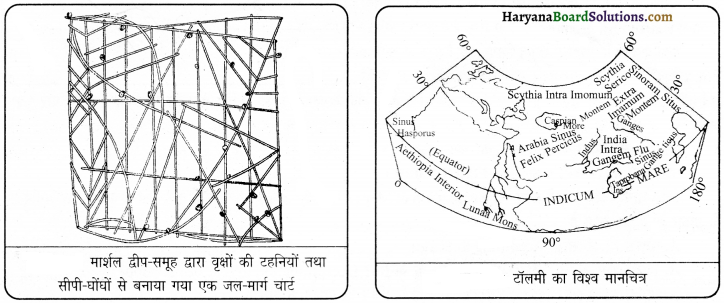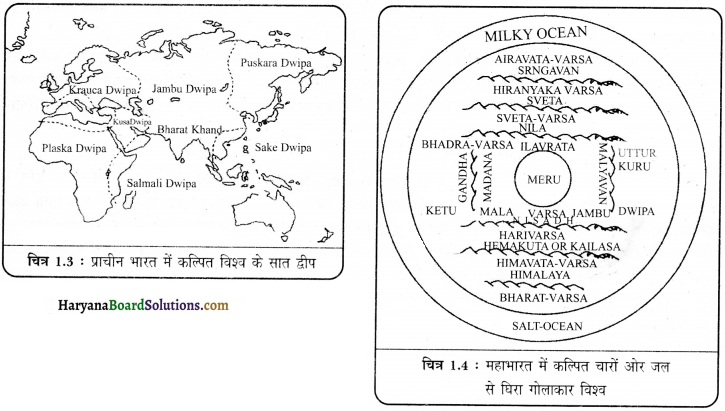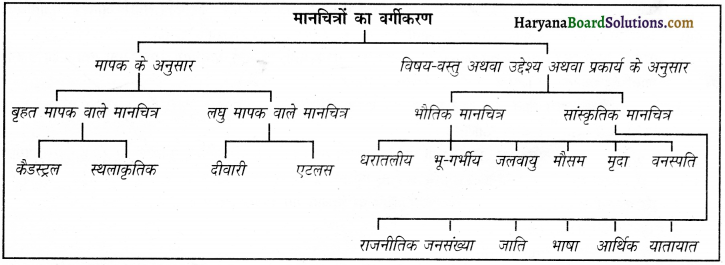Haryana State Board HBSE 12th Class English Solutions Flamingo Chapter 1 The Last Lesson Textbook Exercise Questions and Answers.
Haryana Board 12th Class English Solutions Flamingo Chapter 1 The Last Lesson
HBSE 12th Class English The Last Lesson Textbook Questions and Answers
Question 1.
The people in this story suddenly realise how precious their language is to them. What shows you this? Why does this happen? [H.B.S.E. March, 2018 (Set-A)] (इस कहानी के लोग अचानक महसूस करते हैं कि उनकी भाषा उनके लिए कितनी कीमती है। यह बात आपको किस प्रकार नज़र आती है ? ऐसा क्यों होता है ?)
Answer:
The people of Alsace were indifferent to their own language, that is, French. But in the war, Alsace and Lorraine pass into the hands of Prussia. An order comes from Berlin that only German would be taught in the schools of Alsace and Lorraine. Now the patriotic feelings of these people for their language are aroused. They suddenly realise that their language is very precious to them. Now the people of Alsace suddenly develop a new-found love for French. They visit the school of M. Hamel and sit on the back benches in his class.
M. Hamel tells them that French is the most beautiful language in the world. It is the clearest and the most logical language in the world. He tells them that they must guard their language. The villagers seem to agree with him. They feel that they should not have neglected their language. They must love their own language. The old men of the village show their respect for their language and country by attending the class of M. Hamel.
Franz also grows sentimental. He feels sad to think that this is the last lesson in French. His teacher is going away the next day. He feels sorry for neglecting his lessons in French. Now suddenly, he develops a liking for French and his teacher.
(अल्सेस के लोग अपनी मातृभाषा फ्रैंच के प्रति रुचि नहीं ले रहे थे। लेकिन युद्ध में, अल्सेस और लॉरेन के क्षेत्र पर पर्शिया का कब्जा हो गया। बर्लिन से एक आदेश आता है कि अल्सेस और लॉरेन के स्कूलों में केवल जर्मन भाषा ही पढ़ाई जाएगी। इस बात से इन लोगों के मन में अपनी भाषा के प्रति देशभक्ति की भावनाओं का विकास हो गया। उन्हें अचानक इस बात की अनुभूति हुई कि उनकी भाषा उनके लिए बहुत कीमती है। अब अल्सेस के लोगों के मन में फ्रैंच भाषा के प्रति नव-सृजित प्रेम था। वे एम० हैमेल के स्कूल में आते हैं और कक्षा में पिछली कतारों में लगे बैंचों पर बैठ जाते हैं। एम० हैमेल उनको बताता है कि फ्रैंच भाषा दुनिया की सबसे सुन्दर भाषा है।
यह संसार की सबसे अधिक स्पष्ट और तर्कपूर्ण भाषा है। वह उन्हें बताता है कि उन्हें अपनी भाषा की रक्षा करनी चाहिए। गाँव के लोग उससे सहमत प्रतीत होते हैं। वे महसूस करते हैं कि उन्हें अपनी भाषा की अवहेलना नहीं करनी चाहिए थी। उन्हें अपनी भाषा से प्यार करना चाहिए। गाँव के वृद्ध लोग एम० हैमेल की कक्षा में उपस्थित होकर अपनी भाषा और अपने देश के प्रति प्रेम को प्रदर्शित करते हैं। फ्रेन्ज भी भावुक हो जाता है। वह इस बात को सोचकर निराश हो जाता है कि फ्रैंच भाषा में यह उसका अंतिम पाठ है। अगले दिन उसका अध्यापक जा रहा है। वह फ्रैंच भाषा के पाठों की अवहेलना करने के बारे में खेद प्रकट करता है। अब अचानक ही, फ्रैंच भाषा और अपने अध्यापक के प्रति उसके मन में स्नेह पैदा हो जाता है।)
Question 2.
Franz thinks, “Will they make them sing in German, even the pigeons?” What could this mean? (There could be more than one answer.) (फ्रेन्ज सोचता है, “क्या वे कबूतरों को भी जर्मन भाषा में गाना सिखाएँगे ?” इसका क्या अभिप्राय हो सकता है?) (इसका एक से अधिक उत्तर हो सकता है।)
Answer:
In the war against Prussia, France is defeated. Two districts of France, Alsace and Lorraine pass into the hands of Prussia. They impose their own language on this area. An order comes from Berlin that French will no longer be taught in the schools of Alsace and Lorraine. In its place, German will be taught. M.Hamel is the teacher in a school of Alsace. He has been there for the last forty years. He has been very strict. Franz has never liked him. But now he is going the next day. The new teacher is coming to teach German.
M. Hamel announces that this is last lesson in French. Everyone is shocked. Now they will have to learn a language, which is quite foreign to them. Their patriotic feelings are aroused. Franz never paid attention to his lessons. But now he is also sentimental. Now he realises that French is beautiful language. He dislikes German.
Suddenly he hears pigeons cooing on the roof. He remarks, “Will they make them sing in German. Even the pigeons.” Franz wants to say that a person’s native language comes to him naturally as cooing comes to pigeons. The Prussians can impose German language on the people of that area. But they cannot create a love for German in their hearts. When a person will express his inner feelings he will express it in his own language as a pigeon coos in its own language. No one can compel it to coo in any other way.
(पर्शिया के खिलाफ युद्ध में, फ्रांस पराजित हो गया। फ्रांस के दो जिले, अल्सेस और लॉरेन पर्शिया को सौंप दिए गए। इस क्षेत्र पर उन्होंने अपनी भाषा थोप दी। बर्लिन से एक आदेश आता है कि अल्सेस और लॉरेन के स्कूलों में फ्रैंच भाषा नहीं पढ़ाई जाएगी। इसके स्थान पर जर्मन भाषा पढ़ाई जाएगी। एम० हैमेल अल्सेस के एक विद्यालय का शिक्षक है। वह पिछले 40 वर्षों से वहीं पर है। वह बहुत ही कठोर रहा है। पॅन्ज कभी-भी उसे पसंद नहीं करता है। लेकिन अब वह अगले दिन जा रहा है। जर्मन भाषा पढ़ाने के लिए नया शिक्षक आ रहा है। एम० हैमेल घोषणा करता है कि फ्रैंच भाषा का यह अंतिम पाठ है। हर कोई सदमे में है। अब उन्हें एक ऐसी भाषा सीखनी पड़ेगी जो उनके लिए पूर्णतया अपरिचित है। उनकी देशभक्ति की भावनाएँ उभर उठीं। फ़ैन्ज ने अपने पाठों पर पहले कभी-भी ध्यान नहीं दिया था। लेकिन अब वह भी भावुक हो गया। अब उसे अहसास हो गया कि फ्रैंच एक सुन्दर भाषा है। वह जर्मन भाषा को पसंद नहीं करता था।
अचानक ही उसे छत पर कबूतर गुटर-गूं करते सुनाई दिए। वह कहता है “क्या वे कबूतरों से भी जर्मन में गुटर-गू करने को कहेंगे।” फ्रेन्ज कहना चाहता है कि किसी व्यक्ति को उसकी मातृभाषा का ज्ञान उसी प्रकार से हो जाता है जैसे कि कबूतरों को गुटर-गूं करने का। पर्शिया के लोग उस क्षेत्र के लोगों पर जर्मन भाषा थोंप सकते हैं। लेकिन वे उनके दिलों में जर्मन भाषा के प्रति प्यार पैदा नहीं कर सकते हैं। जब कोई व्यक्ति अपनी अंदरूनी भावनाओं को प्रकट करेगा तो वह उन्हें अपनी भाषा में उसी प्रकार से प्रकट करेगा जैसे कबूतर अपनी भाषा में गुटर-गूं करता है। कबूतर को कोई भी किसी अन्य ढंग से गुटर-यूँ करने के लिए बाध्य नहीं कर सकता है।)
Think As You Read
Question 1.
What was Franz expected to be prepared with for school that day? [H.B.S.E. 2017 (Set-A)] (उस दिन स्कूल के लिए फ्रन्ज को कौन-सा पाठ तैयार करना था ?)
Answer:
Franz was expected to be prepared with participles on that day. His teacher, M. Hamel, had said that he would ask the students questions on participles on that day. But Franz had not prepared the lesson. He expected that his teacher would scold him.
(उस दिन फ्रेन्ज को क्रिया-विशेषण का पाठ तैयार करके आना था। उसके अध्यापक एम० हैमेल ने कहा था कि वह उस दिन क्रिया-विशेषण से संबंधित प्रश्न पूछेगा। लेकिन फ्रेन्ज ने पाठ तैयार नहीं किया था। उसे लग रहा था कि अध्यापक उसे दण्ड देगा।)
Question 2.
What did Franz notice that was unusual about the school that day? [H.B.S.E. 2017 (Set-B)] (उस दिन स्कूल में फ्रन्ज ने क्या असाधारण बात देखी?)
Answer:
Franz noticed that there was something unusual about the school that day. Usually there was a great bustle when the school began. The noise could be heard in the street. But on that day everything was as still as a Sunday morning. So it was quite unusual and surprising to Franz.
(फ्रेन्ज ने देखा कि उस दिन स्कूल में कुछ अजीब-सा हो रहा था। आमतौर पर जब स्कूल लगता था तो वहाँ बहुत शोर-शराबा होता था। शोर गली में भी सुनाई पड़ जाता था। लेकिन उस दिन सब कुछ रविवार की सुबह की तरह शांत था। इसलिए यह फ्रेन्ज के लिए बिल्कुल अजीब और हैरान कर देने वाली बात थी।)

Question 3.
What had been put up on the bulletin-board? [H.B.S.E. March, 2018 (Set-A)] (समाचार-पट्ट (नोटिस बोर्ड) पर क्या लगाया गया था ?)
Answer:
On his way to school, he passed by the town hall. There was a crowd before the bulletin board. There was a notice on the bulletin board that French language would be taught no more in the schools. The order had come from Berlin that only German would be taught in the schools of Alsace and Lorraine.
(स्कूल जाते समय वह टाऊन हॉल के पास से गुजरा। समाचार-पट्ट (नोटिस बोड) के सामने बहुत भीड़ थी। समाचार-पट्ट (नोटिस बोर्ड) पर एक सूचना लगी हुई थी कि अब से स्कूलों में फ्रांसीसी भाषा नहीं पढ़ाई जाएगी। बर्लिन से आदेश आया था कि अल्सेस और लॉरेन के स्कूलों में केवल जर्मन भाषा ही पढ़ाई जाएगी।)
Think as you read
Question 1.
What changes did the order from Berlin cause in the school that day? (उस दिन स्कूल में बर्लिन से आए आदेश ने क्या परिवर्तन करवाए थे ?)
Answer:
The order from Berlin said that only German would be taught in the schools of Alsace and Lorraine. That order caused a lot of dismay in the school that day. It upset the students as well as their teacher. M. Hamel told that the students that it was their last French lesson that day. The new teacher would come the next day. He would teach them, German.
(बर्लिन से आए आदेश में कहा गया था कि अल्सेस और लॉरेन के स्कूलों में केवल जर्मन भाषा ही पढ़ाई जाएगी। इस आदेश से उस दिन स्कूल में बहुत अधिक निराशा फैल गई। इस आदेश से विद्यार्थी और शिक्षक सभी परेशान हो गए। एम० हैमेल ने विद्यार्थियों को बताया कि उस दिन उनका फ्रैंच भाषा का अंतिम पाठ था। अगले दिन नया अध्यापक आ जाएगा। वह उन्हें जर्मन भाषा पढ़ाएगा।)
Question 2.
How did Franz’s feelings about M. Hamel and school change? (एम० हैमेल और स्कूल के बारे में फ्रन्ज के विचार किस प्रकार बदल गए ?)
Answer:
M. Hamel said that it was their last French lesson. The new teacher was coming the next day. Now Franz became sentimental. He knew very little about French. But suddenly he developed a strange fascination for this language. Only a while ago, his books seemed a nuisance to him. But now these were his old friends. M. Hamel was going away. The idea that he would never see teacher again was painful to him. He even forget how cranky M. Hamel was.
(एम० हैमेल ने कहा कि फ्रैंच भाषा का वह उनका अंतिम पाठ था। अगले दिन नया अध्यापक आ रहा था। अब फ्रेन्ज भावुक हो गया। उसे फ्रैंच भाषा का कम ही ज्ञान था। लेकिन इस भाषा के प्रति उसमें एक अजीब-सा आकर्षण पैदा हो गया था। केवल कुछ ही समय पहले, उसकी पुस्तकें उसे एक सरदर्द प्रतीत होती थीं। लेकिन अब वे उसकी पुरानी मित्र बन गई थीं।
एम० हैमेल वहाँ से जा रहा था। यह विचार कि वह अपने शिक्षक को फिर कभी नहीं देखेगा उसके लिए पीड़ादायक था। वह इस बात को भी भूल चुका था कि एम० हैमेल कितना सनकी था।)
Talking about the text :
Question 1.
“When a people are enslaved, as long as they hold fast to their language it is as if they had the key to their prison.” Can you think of examples in history where a conquered people had their language taken away from them or had a language imposed on them? (“जब कोई समाज गुलाम हो जाता है, तो जब तक वे अपनी भाषा को पकड़े रहते हैं, तो ऐसा होता है कि मानो यह उनके जेल की चाबी है।” क्या आप इतिहास में से ऐसे उदाहरण सोच सकते हैं जहाँ गुलाम लोगों की भाषा उनसे छीन ली गई हो या उन पर कोई और भाषा थोप दी गई हो ?)
Answer:
It is true that our language is the key to our freedom. By holding fast to their language, the conquered people can hope to attain freedom soon. There are many examples where the conquering nations imposed their language on the conquered nation. The British imposed English language on the Indians. In the same way, Spanish and Portuguese were imposed on the people of Latin American countries.
(यह बात सच है कि हमारी भाषा हमारी सफलता की कुंजी होती है। अपनी भाषा पर मजबूत पकड़ रखने वाले लोग, जिन पर विजय हासिल कर ली जाती है शीघ्र ही स्वतंत्रता की आशा कर सकते हैं। ऐसे बहुत-से उदाहरण हैं जहाँ जीतने वाले लोगों ने जीते हुए राष्ट्रों के ऊपर अपनी भाषा थोप दी थी। अंग्रेजों ने भारतीयों पर अंग्रेजी भाषा थोप दी थी। इसी तरह से लैटिन अमरीकी देशों पर स्पेन और पुर्तगाल की भाषाएँ थोप दी गई थीं।)

Question 2.
What happens to a linguistic minority in a state? How do you think they can keep their language alive? For example : Punjabis in Bangalore Tamilians in Mumbai Kannadigas in Delhi Gujaratis in Kolkata. (किसी राज्य में भाषाई अल्पसंख्यक के साथ क्या होता है ? आपके अनुसार वे अपनी भाषा को किस प्रकार जीवित रख सकते हैं ? उदाहरण के तौर पर बंगलौर में पंजाबी मुम्बई में तामिल दिल्ली में कन्नड़ लोग कोलकाता में गुजराती।)
Answer:
A linguistic minority faces difficulty in any state. People of this minority find it difficult to communicate with the others in the state. They have to learn the language which the majority of the people in the state speak and write. In government offices, the work is done in the state language. In schools and colleges, the medium of instruction is the language of the majority.
The Punjabis in Bangalore, the Tamilians in Mumbai, the Kannadigas in Delhi and the Gujaratis in Kolkata can keep their language alive by safeguarding it among themselves. They must communicate with the members of their community in their own language.
(भाषाई अल्पसंख्यक लोग किसी भी राज्य में कठिनाई महसूस करते हैं। इस अल्पसंख्यक समूह के लोग राज्य के दूसरे लोगों के साथ बातचीत करने में कठिनाई महसूस करते हैं। उनको उस भाषा को सीखना पड़ता है जो भाषा उस राज्य का बहुसंख्यक समुदाय बोलता और लिखता है। राजकीय कार्यालयों में, काम उस राज्य की भाषा में किया जाता है। स्कूलों और कॉलेजों में शिक्षा का माध्यम बहुसंख्यक समुदाय के लोगों की भाषा होता है। बंगलौर में पंजाबी, मुम्बई में तमिल, दिल्ली में कन्नड़ और कोलकाता में गुजराती अपनी भाषा को जीवित रख सकते हैं, इसे स्वयं के लोगों के बीच सुरक्षित रखकर । उन्हें अपने समुदाय के लोगों के बीच अपनी भाषा में ही संवाद करना चाहिए।)
Question 3.
Is it possible to carry pride in one’s language too far? Do you know what “linguistic chauvinism means?
(क्या भाषा के प्रति अपने गर्व को बहुत आगे तक ले जाना सम्भव है ? क्या आप जानते हैं ‘भाषा का दमन’ क्या होता है ?)
Answer:
Excessive pride in one’s language is not good. It is dangerous to carry our pride in our language too far. It is not bad to be proud of our culture, our traditions and language. But if we consider our language superior to other languages, it is not good. Language is after all, only a way of expressing our thoughts. As different people believe in different religions, so they speak different languages.
We must respect all languages. ‘Linguistic Chauvinism’ means opposition to all languages except our own. It means having an excessive pride in one’s own language. This is shown in the story. Prussia captured two districts of France. They ordered that only German language would be taught in those districts. They imposed their own language without caring for the sentiments of the people. This is ‘linguistic chauvinism’.
(किसी को अपनी भाषा पर अति गर्व होना भी अच्छी बात नहीं है। अपनी भाषा पर गर्व को बहुत आगे तक बढ़ाना खतरनाक बात है। अपनी संस्कृति, अपनी परम्पराओं और भाषा पर गर्व करना बुरी बात नहीं है। लेकिन यदि हम अपनी भाषा को अन्य भाषाओं से श्रेष्ठ मानते हैं, तो यह अच्छी बात नहीं है। आखिरकार भाषा केवल हमारे विचारों को प्रकट करने का एक माध्यम है। क्योंकि भिन्न-भिन्न लोग, भिन्न-भिन्न धर्मों में विश्वास रखते हैं, इसलिए वे भिन्न-भिन्न भाषाएँ बोलते हैं। हमें सभी भाषाओं का सम्मान करना चाहिए।
‘भाषाई अंधराष्ट्रवाद’ का अर्थ है-अपनी भाषा को छोड़कर अन्य सभी भाषाओं का विरोध करना। इसका अर्थ है व्यक्ति का अपनी भाषा पर अति गर्व करना। यह बात इस कहानी में दशाई गई है। पर्शिया ने फ्रांस के दो जिलों पर कब्जा कर लिया। उन्होंने आदेश दिया कि उन जिलों में केवल जर्मन भाषा पढ़ाई जाएगी। उन्होंने लोगों की भावनाओं का ख्याल किए बिना उन पर अपनी भाषा को थोप दिया। इसे ही भाषा का दमन’ कहा जाता है।)
Working With Words
Question 1.
English is a language that contains words from many other languages. This inclusiveness is one of the reasons it is now a world language, For example :
petite – French
kindergarten – German
capital – Latin
democracy – Greek
bazaar – Hindi
Find out the origins of the following words.
tycoon barbecue zero
tulip veranda ski
logo robot trek
bandicoot
Answer:
Word – Origin
(i) tycoon – Japanese (taikun)
(ii) tulip – French (tulipe)
(iii) logo – Greek (logos)
(iv) bandicoot – Telugu (pandikokku)
(v) barbecue – Spanish (barbacoa)
(vi) veranda – Hindi (veranda)
(vii) robot – Czech (robota)
(viii) zero – American English
(ix) ski – Norwegian
(x) trek – Dutch (trekken)
2. Notice the underlined words in these sentences and tick the option that best explains their meaning. (a) “What a thunderclap these words were to me!”
The words were
(i) loud and clear.
(ii) startling and unexpected.
(iii) pleasant and welcome.
(b) “When a people are enslaved, as long as they hold fast to their language it is as if they had the key to their prison.” It is as if they have the key to the prison as long as they
(i) do not lose their language.
(ii) are attached to their language.
(iii) quickly learn the conqueror’s language.
(c) Don’t go so fast, you will get to your school in plenty of time.
You will get to your school
(i) very late.
(ii) too early.
(iii) early enough.
(d) I never saw him look so tall.
M. Hamel
(i) had grown physically taller.
(ii) seemed very confident.
(iii) stood on the chair.
Answer:
(a)
(ii) startling and unexpected.
(b)
(ii) are attached to their language.
(c)
(iii) early enough.
(d)
(ii) seemed very confident.

Noticing form
Read this sentence
M. Hamel had said that he would question us on participles. उक्त वाक्य के प्रथम भाग में verb का रूप “had said” पूर्वकालिक भूत (earlier past) को दर्शाने के लिए प्रयुक्त हुआ है । पूरी कहानी भूतकाल में वर्णित है । एम. हेमल का “कथन” इस कहानी की घटनाओं से पहले का है । Verb का यह रूप past perfect कहलाता है । Pick out five sentences from the story with this form of the verb and say why this form has been used. कहानी से कोई पाँच वाक्य चुनिए जिनमें क्रिया के इस रूप का प्रयोग हुआ हो और बताइये कि क्रिया के इस रूप का प्रयोग क्यों हुआ है।
Answer:
(i) I had counted on the commotion to get to my desk without being seen.
(ii) I had got a little over my fright ……..
(iii) That was what they had put up at the town hall.
(iv) He had put on his fine Sunday clothes.
(v) I had never listened so carefully. In all the above mentioned sentences, the past perfect form of verb has been used to point out something that had happened before a certain point of time in the past.
उपर्युक्त सभी वाक्यों में Past Perfect का प्रयोग भूतकाल के किसी निर्देश बिन्दु से पूर्व घटित हो रही किसी घटना को दर्शाने के लिए किया गया है ।
Writing:
Question 1.
Write a notice for your school bulletin-board. Your notice could be an announcement of a forthcoming event, or a requirement to be fulfilled or a rule to be followed.
अपने विद्यालय के सूचना-पट्ट के लिए एक सूचना लिखिए । आपकी सूचना किसी आने वाली घटना अथवा किसी अनिवार्यता के पालन करने अथवा किसी नियम के पालन से सम्बंधित हो सकती है ।
Answer:
Government Higher Secondary School, Dulchasar (Bikaner)
November 27, 20-
NOTICE
Essay Writing Competition
The Cultural Society of Dulchasar is going to organize an essay writing competition on 25-12-20xx, on the topic ‘How to Eradicate Corruption.’ The forms are available in the school office. Interested students may get them from the office in school hours. The society will give prizes as well as citations to the winning candidates.
Principal
Govt H. Sec. School, Dulchasar
Question 2.
Write a paragraph of about 100 words arguing for or against having to study three languages at school.
स्कूल में तीन भाषाएँ पढ़ने के पक्ष अथवा विपक्ष में 100 शब्दों का एक अनुच्छेद लिखिये ।
Answer:
For: After deep deliberations, India has accepted three language formulas. India is a vast country with so much diversity. Such a big nation as ours can be held together with the help of languages only. Every region of our country has a language of its own.
These are regional languages such as Marwari, Gujarati, Tamil, Telugu, Bangla etc. So a student must learn his/her regional language. Hindi is our national language so it is highly imperative to all Indians to learn Hindi. English is an international language. In this age of globalization, it is utterly undesirable not to learn English. So learning three languages at school level is very necessary.
पक्ष : गहन विचार-विमर्श के बाद, भारत ने त्रिभाषा सूत्र को स्वीकार कर लिया है। भारत बहुत अधिक विविधताओं वाला एक बहुत विशाल राष्ट्र है। हमारे जैसे एक विशाल राष्ट्र को केवल भाषा की मदद से संगठित रखा जा सकता है । हमारे देश के प्रत्येक क्षेत्र की अपनी स्वयं की एक बोली है ।
ये क्षेत्रीय भाषाएँ हैं; जैसे मारवाड़ी, गुजराती, तमिल, तेलुगु, बंगला इत्यादि । इसलिए एक विद्यार्थी को अपनी क्षेत्रीय भाषा सीखनी ही चाहिये । हिन्दी हमारी राष्ट्र भाषा है इसलिए सभी भारतीयों के लिए हिन्दी सीखना अति आवश्यक है । अंग्रेजी एक अंतर्राष्ट्रीय भाषा है । वैश्वीकरण के इस युग में अंग्रेजी नहीं सीखना अत्यधिक अवांछनीय है । इसलिए विद्यालय स्तर पर तीन भाषाएँ सीखना अति आवश्यक है। .
Question 3.
Have you ever changed your opinion about someone or something that you had earlier likad or disliked ? Narrate what led you to change your mind.
क्या आपने कभी किसी व्यक्ति या वस्तु के बारे में अपने विचार बदले हैं जिसे आप पहले पसंद या नापसंद करते थे ? वर्णन कीजिये किस चीज ने आपके मन को बदल दिया ।।
Answer:
My father is a teacher and a kind man. We have a maternal uncle. He was a rich man. We respected him very much. He used to visit our house time and again. We felt very happy when he visited our house. He used to bring sweets and fruits for us. My father used to lend him money.
We didn’t know this but mother knew it. One day my father fell seriously ill and we needed money for his treatment. My mother sent me to him for the money. My maternal uncle behaved very rudely. He rebuked me badly and refused to return our money. I felt very sorry. Since then I have no respect for him. His being an opportunist changed my mind.
मेरे पिताजी एक अध्यापक व दयालु व्यक्ति हैं । हमारे एक मामा हैं । वह एक धनी व्यक्ति थे । हम उनका बहुत सम्मान करते थे । वे अक्सर हमारे घर पर आया करते थे । जब वे हमारे घर आते थे तो हम बहुत खुश होते थे । वे हमारे लिए मिठाइयाँ व फल लाया करते थे । मेरे पिताजी उन्हें रुपये उधार दिया करते थे ।
हम यह नहीं जानते थे लेकिन मेरी माताजी यह जानती थीं। एक बार मेरे पिताजी भयंकर बीमार पड़े तथा हमें उनके इलाज के लिए रुपयों की आवश्यकता हुई । मेरी माँ ने मुझे रुपयों के लिए उनके पास भेजा । मेरे मामा ने अत्यधिक अशिष्ट व्यवहार किया । उन्होंने मुझे बुरी तरह से फटकारा व हमारे रुपये लौटाने से इन्कार कर दिया । मुझे बहुत दु:ख हुआ । तब से उनके प्रति मेरे मन में कोई सम्मान नहीं है । उनकी अवसरवादिता ने मेरे मन को बदल दिया।

HBSE 12th Class English The Last Lesson Important Questions and Answers
Short Answer Type Questions
Answer the following questions in about 20-25 words :
Question 1.
What is the background of the story ‘The Last Lesson’? .. (‘द लास्ट लैस्न’ कहानी की पृष्ठभूमि क्या है ?)
Answer:
This story is set in the days of the Franco-Prussian War (1870-1871). In this war, France was defeated by Prussia (Germany). Then an order came from Germany. According to this order, German language was imposed on the French districts of Alsace and Lorraine. A student named Franz is the narrator of the story. The writer describes the effect of this shocking news on the narrator, his teacher, M. Hamel and the villagers.
(यह कहानी 1870-71 में फ्रांसीसी-पर्शिया युद्ध के दिनों के दौरान की घटना के बारे में है। इस युद्ध में फ्रांस पर्शिया (जर्मनी) के हाथों पराजित हो गया। तब जर्मनी से एक आदेश आया। इस आदेश के तहत, फ्रांस के अल्सेस और लॉरेन जिलों पर जर्मन भाषा थोप दी गई। फ्रेन्ज नाम का एक विद्यार्थी इस कहानी का वर्णनकर्ता है। लेखक इस सदमे भरी खबर का वर्णनकर्ता, उसके अध्यापक एम० हैमेल और गाँव वालों पर पड़े प्रभाव का वर्णन करता है।)
Question 2.
Why was Franz afraid of? [H.B.S.E. 2017 (Set-C)] (फ्रेन्ज क्यों डरा हुआ था ?)
Or
What dread did little Franz have when he started for school in the morning? [2020 (Set-C)] (छोटे फ्रेन्ज को किस बात का भय था जब वह सुबह स्कूल के लिए निकला?)
Answer:
Franz was very late for school. He feared that he would be rebuked for coming late. But his real dread was his failure to learn the participles. On that day, the teacher, M. Hamel, had to question the students about participles. But Franz had not prepared his lesson. So he was afraid of being rebuked.
(फ्रेन्ज को स्कूल के लिए बहुत अधिक देर हो गई थी। उसे डर था कि उसे देर से आने की वजह से डाँट पड़ेगी। लेकिन उसका असली भय क्रिया-विशेषण का पाठ याद न कर पाने की वजह से था। उस दिन, शिक्षक एम० हैमेल ने क्रिया-विशेषण के पाठ से सम्बन्धित प्रश्न पूछने थे। लेकिन फ्रेन्ज ने अपना पाठ याद नहीं किया था। इसलिए उसे डाँट पड़ने का डर था।)
Question 3.
What did Franz decide to do for a moment ? (एक क्षण के लिए फ्रेन्ज क्या करने का फैसला करता है ?)
Answer:
Franz was late for school. Secondly, on that day, his teacher had to ask questions on participles. But he had not learnt his lesson. He feared that the teacher would rebuke him. So for a moment, he thought of running away and spending the day in the countryside. But then he decided to attend the school and hurried on.
(फ्रेन्ज को स्कूल के लिए देर हो गई थी। दूसरे, उस दिन उसके शिक्षक ने क्रिया-विशेषण के पाठ से सम्बन्धित प्रश्न पूछने थे। लेकिन उसने अपना पाठ याद नहीं किया था। उसे डर था कि शिक्षक उसे डाँटेगा। इसलिए एक पल के लिए उसके दिमाग में भागकर कहीं देहात में दिन बिताने का विचार आया। लेकिन तब उसने स्कूल में उपस्थित होने का निर्णय लिया और तेजी से आगे बढ़ गया।)
Question 4.
What was the temptation and how did Franz resist it? (प्रलोभन क्या था और फ्रेन्ज ने इसका विरोध किस प्रकार किया ?)
Answer:
Franz had not prepared his lesson. He feared that his teacher would rebuke him. For a moment he decided to run away and spend the day in the countryside. There was a great temptation before him. The weather was very warm and the day was bright. Open fields and the chirping of birds were more attractive than the participles. He could also watch the Prussian soldiers drilling in the open. But he had the strength to resist this temptation. He decided to hurry off to the school.
(फ्रेन्ज ने अपना पाठ याद नहीं किया था। उसे डर था कि उसका शिक्षक उसे डाँटेगा। एक क्षण के लिए तो उसके मन में विचार आया कि वह वहाँ से भाग कर अपना दिन कहीं देहात में बिताए। उसके सामने एक बड़ा प्रलोभन था। उस दिन मौसम बहुत गर्म था और दिन चमकीला था। खुले खेत और पक्षियों की चहकने की आवाज़ों का आकर्षण क्रिया-विशेषण के पाठ से कहीं अधिक था। वह पर्शिया के सैनिकों को खुले मैदानों में बोर करते हुए देख सकता था। लेकिन उसमें इस प्रलोभन को रोक पाने की ताकत थी। इसलिए उसने तेजी से स्कूल की ओर जाने का निर्णय किया।)
Question 5.
What caused the bustle when the school began? [H.B.S.E. 2017 (Set-D)] (जब स्कूल आरम्भ होता था तो किस बात से शोर होता था ?)
Answer:
Usually, when the school began, there was a great bustle. The noise could be heard out in the street. This bustle was caused by the opening and closing of desks. The students repeated their lessons very loud in unison. This caused a lot of noise. The teacher rapped his ruler on the table. All these things caused a lot of bustle.
(प्रायः जब स्कूल शुरू होता था, तो वहाँ बहुत शोर होता था। वह शोर बाहर गली में भी सुनाई पड़ जाता था। यह शोर डेस्कों के खोलने और उन्हें बंद करने का होता था। विद्यार्थी एक लय में अपने पाठों को ऊँचे स्वर में दोहराते थे। इसकी वजह से बहुत अधिक शोर पैदा होता था। अध्यापक अपने डंडे को मेज पर टक-टक मारता रहता था। ये सभी चीजें बहुत अधिक शोर पैदा करती थीं।)
Question 6.
Why was there a big crowd in front of the bulletin board? What kind of news did people get from there?
(समाचार-पट्ट (नोटिस बोर्ड) के सामने भीड़ क्यों थी ? लोगों को वहाँ से किस प्रकार की खबरें मिलती थीं ?)
Answer:
On his way to school, Franz passed by the Town Hall. There he found that there was a big crowd in front of the bulletin board. It was a usual sight these days. For the last two years, all kinds of bad news had come from there. People got the news of the lost battles, the draft and the orders of the commanding officer. That day, there was another bad news. The order from Berlin said that German would be taught in the schools of Alsace and Lorraine.
(स्कूल के रास्ते में, फॅन्ज टाऊन हाल के पास से गुजरा। वहाँ उसने पाया कि समाचार-पट्ट के सामने अत्यधिक भीड़ थी। ऐसा होना आजकल एक आम बात थी। पिछले दो वर्षों से वहाँ से सभी तरह के बुरे समाचार आ रहे थे। लोगों ने वहाँ से युद्ध में पराजय के समाचार और कमांडिंग अफसर के आदेश प्राप्त किए थे। उस दिन भी वहाँ एक बुरा समाचार था। बर्लिन से आए आदेश में कहा गया था कि अल्सेस और लॉरेन के स्कूलों में जर्मन भाषा पढ़ाई जाएगी।)
Question 7.
Why had Franz hoped that he would be able to enter the school unnoticed? (फ्रेन्ज को यह आशा क्यों थी कि वह चुपचाप स्कूल में प्रवेश कर पाएगा?)
Answer:
Franz was late for school. He feared that if he was noticed, he would be punished. But he also hoped that he would be able to enter the school unnoticed. Generally, when the school began, there was a lot of bustle. This noise was so great that it could be heard in the street. He hoped that in that bustle no one would notice that he was late.
(फ्रेन्ज को स्कूल के लिए देरी हो गई थी। उसे डर था कि यदि उस पर नजर पड़ गई तो उसे सजा मिलेगी। लेकिन उसे ऐसी उम्मीद भी थी कि वह बिना किसी की नजर में आए स्कूल में प्रवेश कर सकता था। आमतौर, पर जब स्कूल शुरू होता था तो वहाँ बहुत अधिक शोर होता था। यह शोर इतना अधिक होता था कि इसे बाहर गली में भी सुना जा सकता थ। उसे उम्मीद थी कि इस शोर-शराबे में किसी का भी ध्यान उसके देर से आने पर नहीं जाएगा।)
Question 8.
What did he find unusual about the school? (उसने स्कूल के बारे में क्या असाधारण बात देखी?)
Answer:
When the narrator reached school, he found something unusual. Generally, there was a great hustle and bustle at the school in the morning. The noise was created by the opening and closing of desks and the repeating of lessons loudly. The sound made by the teacher by rapping his ruler on the table could also be heard from the street. But that day, everything was calm and quiet. It was quite unusual.
(जब वर्णनकर्ता स्कूल पहुंचा, तो उसे कुछ अजीब-सा लगा। आमतौर पर, सुबह के समय स्कूल में बहुत अधिक चहल-पहल और शोर-शराबा होता था। यह शोर डेस्कों को खोलने और बंद करने और पाठों की दोहराई करने के कारण पैदा होता था। अध्यापक के द्वारा अपने डंडे को टक-टक से मेज पर मारने की वजह से पैदा हुआ शोर भी बाहर गली में सुना जा सकता था। लेकिन उस दिन सब कुछ शांत था। यह एक बिल्कुल अजीब बात थी।)
Question 9.
How did Franz enter the school? How did the teacher react? (फ्रेन्ज ने स्कूल में प्रवेश किस प्रकार किया ? अध्यापक की क्या प्रतिक्रिया थी ?) Or Did M. Hamel get angry with Franz for being late?
[H.B.S.E. March, 2018 (Set-B)] (क्या एम० हैमेल फ्रेन्ज के देर से आने पर क्रोधित हुए?)
Answer:
Franz was late for school. He feared that he would be rebuked by his teacher. He wanted to get to his desk without being noticed. But that day, everything was calm and quiet. He had to open the door and go in before everybody. The teacher was already there. Franz blushed and was frightened. But nothing happened. His teacher spoke very kindly and asked him to take his seat.
(फ्रेन्ज को स्कूल के लिए देर हो गई थी। उसे डर था कि उसे शिक्षक से डाँट पड़ेगी। वह बिना किसी की नजर पड़े अपने डेस्क तक पहुँचना चाहता था। लेकिन उस दिन सब कुछ शांत था। उसे दरवाजा खोलकर सभी के सामने अंदर आना पड़ा। अध्यापक पहले से ही वहाँ था। फ्रेन्ज का चेहरा लाल पड़ गया और वह डर गया। लेकिन ऐसा कुछ नहीं हुआ। उसके अध्यापक ने बड़ी दयालुता से बात की और उसे अपनी सीट पर बैठने के लिए कहा।)

Question 10.
What surprised the narrator most when he took his seat in the class? (जब कक्षा में वह अपनी सीट पर बैठा तो वर्णनकर्ता को किस बात ने हैरान किया?) Or How was M. Hamel’s class different the day Franz went late to school? [H.B.S.E. 2019 (Set-A)] (एम० हैमेल की कक्षा अन्य दिनों से कैसे भिन्न थी, जिस दिन फ्रांज देर से स्कूल गया था?)
Answer:
Franz entered the class and took his seat. It was strange that he was not rebuked by his teacher. It was also strange that the whole school seemed calm and quiet. But what surprised him most was that the village people were sitting on the back benches. Everybody sat quiet and looked sad. He saw that the former mayor, the former postmaster and many others villagers were sitting there. They were sad to know that from the next day, German would be taught in the schools of Alsace and Lorraine.
(फ्रन्ज ने कक्षा में प्रवेश किया और अपनी सीट पर बैठ गया। यह अजीब बात थी कि उसके शिक्षक ने उसे डाँटा नहीं था। यह भी अजीब बात थी कि सारा स्कूल एकदम से शांत था। लेकिन जिस बात ने उसे सबसे अधिक हैरान किया वह थी कि गाँव के लोग पीछे वाले बैंचों पर कक्षा में बैठे हुए थे। प्रत्येक व्यक्ति शांत बैठा था और उदास दिखाई दे रहा था। उसने देखा कि पूर्व महापौर, पूर्व डाकपाल और बहुत-से अन्य ग्रामीण वहाँ पर बैठे हुए थे। वे इस बात को जानकार हैरान थे कि अगले दिन से, अल्सेस और लॉरेन के स्कूलों में जर्मन भाषा पढ़ाई जाएगी।)
Question 11.
What shocking news did M. Hamel give to the students and the villagers? What was its effect on them?
(एम० हैमेल ने छात्रों और गाँव वालों को सदमे वाली क्या खबर दी ? इसका उन पर क्या प्रभाव हुआ?)
Answer:
That day villagers attended the class of M. Hamel. They were sitting on the back benches. Everything was quiet and calm. M. Hamel took his chair. He spoke in a grave and gentle tone. He announced that it was his last French lesson. He said that an order had come from Berlin. German would be taught in the schools of Alsace and Lorraine. The new teacher was coming the next day. This news made everyone sad. They were shocked.
(उस दिन ग्रामीण एम० हैमेल की कक्षा में उपस्थित थे। वे पीछे वाले बैंचों पर बैठे थे। सब कुछ एकदम से शांत था। एम० हैमेल अपनी कुर्सी पर बैठा था। वह एक गंभीर और सौम्य स्वर में बोला। उसने घोषणा की कि यह उसका फ्रांसीसी भाषा का अंतिम पाठ था। उसने कहा कि बर्लिन से एक आदेश आया है कि अल्सेस और लॉरेन के स्कूलों में जर्मन भाषा पढ़ाई जाएगी। नया अध्यापक अगले दिन आ रहा था। इस समाचार ने हर किसी को उदास कर दिया। वे सदमे में थे।)
Question 12.
What was the effect of M.Hamel’s announcement on the narrator? (वर्णनकर्ता पर एम० हैमेल की घोषणा का क्या प्रभाव हुआ ?)
Answer:
M. Hamel announced that it was his last French lesson. He said that according to an order from Berlin, only German would be taught in the schools of Alsace and Lorraine. This announcement made Franz very sad. He felt sorry for not learning his lessons in French. He had never liked his books. But now he no longer hated his books. He even started liking M. Hamel, in spite of his harshness.
(एम० हैमेल ने घोषणा की कि वह उसका फ्रांसीसी भाषा का अंतिम पाठ था। उसने कहा कि बर्लिन से आए एक आदेश के अनुसार अल्सेस और लॉरेन के स्कूलों में केवल जर्मन भाषा ही पढ़ाई जाएगी। इस घोषणा ने फॅन्ज को बहुत अधिक उदास कर दिया। आज उसे अपने फ्रांसीसी भाषा के पाठों को याद न करने का अफसोस हो रहा था। वह अपनी किताबों को कभी पसंद नहीं करता था। लेकिन अब वह अपनी किताबों के प्रति घृणा को भूल चुका था। उसने एम० हैमेल को भी उसकी सख्तमिजाजी के बावजूद पसंद करना शुरू कर दिया था।)
Question 13.
Franz could not recite the rules for the participles. How did M. Hamel react? (फ्रेन्ज पार्टीसिप्ल के नियम नहीं सुना पाया। इस पर श्री हैमेल की क्या प्रतिक्रिया हुई ?) Or
Who did M. Hamel blame for the neglect of learning on the part of boys like Franz? . (फ्रेन्ज जैसे लड़के के पाठ याद करने की उपेक्षा के लिए एम० हैमेल ने किसे दोषी ठहराया?)[H.B.S.E. 2019 (Set-D)]
Answer:
Franz heard his name called. It was his turn to recite the rules of participles. In spite of his best efforts, he could not recite the rules. He stood there holding on the desk. His heart was beating. He did not dare to look up. But the teacher did not rebuke him. He told Franz kindly that he would not rebuke him. He said that Franz was not the only one who neglected learning French. Many others in Alsace and Lorraine were like him.
(फ्रेन्ज ने अपने नाम की पुकार सुनी। क्रिया-विशेषण के नियम सुनाने की अब उसकी बारी थी। अपने पूरे प्रयास करने के बावजूद भी वह नियम नहीं सुना सका। वह डेस्क को पकड़े हुए खड़ा रहा। उसका दिल धक-धक कर रहा था। उसमें ऊपर देखने तक का साहस नहीं था। लेकिन अध्यापक ने उसे डाँटा नहीं। उसने फॅन्ज को दयालुतापूर्वक बताया कि वह उसे डाँटेगा नहीं। उसने बताया कि फ्रन्ज केवल मात्र अकेला नहीं था जिसने फ्रांसीसी भाषा को सीखने में अवहेलना की थी। अल्सेस और लॉरेन में उस जैसे और बहुत थे।)
Question 14.
What kind of clothes was M.Hamel wearing? Why had he put on that fine dress? (एम० हैमेल किस प्रकार के कपड़े पहने हुए था? उसने वह सुन्दर पोशाक क्यों पहनी हुई थी ?)
Answer:
M. Hamel had put on his beautiful green coat, his frilled shirt and the little black silk cap. He never wore those clothes except on inspection and prize days. But that day he was wearing those clothes in honour of the last French lesson. An order from Berlin had come that only German would be taught in the schools of Alsace and Lorraine. The new teacher was coming the next day.
(एम० हैमेल ने अपना हरे रंग का सुन्दर कोट, झालरवाला कमीज और रेशम की छोटी टोपी पहनी हुई थी। वह निरीक्षण और पुरस्कार वितरण समारोह के अतिरिक्त उन कपड़ों को कभी नहीं पहनता था। लेकिन उस दिन उसने फ्रांसीसी भाषा के अंतिम पाठ के सम्मान में वे कपड़े पहन रखे थे। बर्लिन से एक आदेश आया था कि अब अल्सेस और लॉरेन के स्कूलों में केवल जर्मन भाषा पढ़ाई जाएगी। नया अध्यापक अगले दिन आ रहा था।)।
Question 15.
What did M. Hamel say about the French language? What did he urge upon his students and villagers to do? [H.B.S.E. March, 2018 (Set-D)] (एम० हैमेल ने फ्रांसीसी भाषा के बारे में क्या कहा ? उसने अपने छात्रों और गाँव वालों से क्या करने का आग्रह किया ?)
or
How does M. Hamel pay a tribute to the French language? [H.B.S.E. March, 2019 (Set-B)] (एम० हैमेल फ्रांसीसी भाषा को श्रद्धांजली कैसे देता है?)
Answer:
It was M.Hamel’s last French lesson. He talked in length about the French language. He told the students and villagers that French was the most beautiful language in the world. He said that it was the clearest and most logical language. He urged upon the students and the villagers to protect it among themselves. He reminded them never to forget it.
(यह एम० हैमेल का फ्रांसीसी भाषा का अंतिम पाठ था। उसने फ्रांसीसी भाषा के बारे में विस्तार से बातचीत की। उसने विद्यार्थियों और गाँव वालों को बताया कि फ्रांसीसी भाषा दुनिया की सबसे सुन्दर भाषा है। उसने बताया कि यह सबसे अधिक स्पष्ट और तर्कपूर्ण भाषा है। उसने विद्यार्थियों और गाँव वालों को इस भाषा को अपने में संरक्षित रखने का आह्वान किया। उसने उन्हें याद दिलाया कि वे उस भाषा को कभी न भूलें।)
Question 16.
Why did M.Hamel ask his students and the villages to guard French among themselves? (एम० हैमेल ने छात्रों एवं गाँव वालों से फ्रांसीसी भाषा को अपने बीच में सुरक्षित रखने के लिए क्यों कहा ?)
Answer:
It was M. Hamel’s last French lesson to his students. From the next day, German would be taught in all the schools of Alsace and Lorraine. M. Hamel was sad but helpless. In his last lesson, he said that French was the most beautiful language in the world. It was the most logical language. He urged upon his students apd the villagers to guard this language. He said that their language is the key to their happiness and freedom. They must not forget it.
(यह एम० हैमेल का अपने विद्यार्थियों के लिए फ्रांसीसी भाषा का अंतिम पाठ था। अगले दिन से अल्सेस और लॉरेन के सभी स्कूलों में जर्मन भाषा पढ़ाई जाएगी। एम० हैमेल निराश परन्तु असहाय था। अपने अंतिम पाठ में, उसने कहा कि फ्रांसीसी भाषा दुनिया की सबसे अधिक सुन्दर भाषा है। वह सबसे अधिक तर्कपूर्ण भाषा है। उसने अपने विद्यार्थियों और गाँव वालों से इस भाषा की रक्षा करने का आह्वान किया। उसने कहा कि उनकी भाषा उनकी खुशी और स्वतंत्रता की कुंजी है। उन्हें इस भाषा को भूलना नहीं चाहिए।)

Question 17.
What was the effect of the last lesson on the narrator? (वर्णनकर्ता पर अन्तिम पाठ का क्या प्रभाव हुआ ?) or
“What a thunderclap these words were to me!” Which were the words that shocked and surprised little Franz? [H.B.S.E. March, 2019 (Set-C)] (“कैसे चौकाने वाले शब्द थे ये मेरे लिए!” ये कौन-से शब्द थे, जिन्होंने छोटे फ्रैन्ज को चौंका दिया और आश्चर्यचकित कर दिया?)
Answer:
M. Hamel was giving his last French lesson. After praising the French language, he opened a grammar book and read them their lesson. Franz found that lesson seemed very easy. He understood it so well. He was very attentive. M. Hamel had never explained everything with so much patience. It appeared as if the teacher wanted to give his students all he knew before going away. He wanted to put it all into their heads with one stroke.
(एम० हैमेल अपना फ्रांसीसी भाषा का अंतिम पाठ पढ़ रहा था। फ्रांसीसी भाषा की प्रशंसा करने के उपरांत, उसने व्याकरण की एक किताब खोली और उसमें से एक पाठ पढ़ा। फ्रेन्ज को लगा कि वह पाठ बहुत आसान था। उसे वह पाठ अच्छी तरह से समझ में आ गया। उसने पूरा ध्यान लगा रखा था। एम० हैमेल ने कभी भी इतने धैर्य के साथ प्रत्येक चीज की इतनी व्याख्या नहीं की थी। ऐसा प्रतीत होता था कि अध्यापक अपने विद्यार्थियों को वह सब कुछ दे देना चाहता था जो कुछ वह जानता था। वह एक ही प्रयास में ये सब बातें विद्यार्थियों के दिमाग में डाल देना चाहता था।)
Question 18.
How did M.Hamel bid farewell to his students and the villagers? (एम० हैमेल ने छात्रों और गाँव वालों को अलविदा किस प्रकार कहा ?)
Answer:
The church clock struck twelve. The trumpets of the Prussian soldiers sounded under the window. It was time to close to school. M. Hamel stood up. He looked very pale. He tried to speak, but could not. His emotions choked his speech. Then he turned to the blackboard and took a piece of chalk. He wrote in big letters, “Vive La France!” (Long Live France). Then, without a word, he made a gesture to those in the classroom with hand, “School is dismissed -you may go.”
(गिरजाघर की घड़ी ने 12 बजे का घंटा बजाया। खिड़की के बाहर से पर्शिया के सैनिकों के बिगुल की आवाज़ सुनाई दी। स्कूल की छुट्टी का समय हो गया था। एम० हैमेल खड़ा हो गया। उसका चेहरा पीला पड़ गया था। उसने बोलने का प्रयास किया, लेकिन बोल नहीं सका। उसकी भावनाओं से उसका गला रुंध गया था। तब वह ब्लैक-बोर्ड की ओर मुड़ा और उसने चॉक का एक टुकड़ा लिया। उसने बड़े-बड़े अक्षरों में लिखा “फ्रांस अमर रहे” । तब उसने बिना कुछ बोले, कक्षा में उपस्थितजनों को हाथ के इशारे से संकेत करते हुए कहा, “स्कूल की छुट्टी हो गई है, आप जा सकते हो”।)
Long Answer Type Questions
Answer the following questions in about 80 words
Question 1.
Reproduce in your own words what Franz did or thought on his way to school? (फ्रेन्ज ने स्कूल जाते समय क्या किया और क्या सोचा, इसका अपने शब्दों में वर्णन करो।) [H.B.S.E. 2020 (Set-D)]
Answer:
Franz was late for school. He feared that his teacher M. Hamel would rebuke him for coming late. Moreover, Franz had not prepared his lesson. He feared that his teacher would rebuke him. For a moment he decided to run away and spend the day in the countryside. There was a great temptation before him. The weather was very warm and the day was Open fields and the chirping of birds were more attracting of birds were more attractive than the participles. He could also watch the Prussian soldiers drilling in the open.
But he had the strength to resist this temptation. He decided to hurry off to the school. When he passed by the Town hall, he saw a big crowd in front of the bulletin board. It was a usual sight these days. For the last two years all kinds of bad news came from Berlin. But Franz did not stop there. He continued going fast. When he reached his school, he was all out of breath.
(फ्रेन्ज को स्कूल के लिए देर हो गई थी। उसे डर लग रहा था कि देर से आने की वजह से उसका अध्यापक उसे डाँटेगा। इससे भी बड़ी बात, फ्रन्ज ने अपना पाठ तैयार नहीं किया था। उसे डर था कि उसका अध्यापक उसे डाँटेगा। एक पल के लिए तो उसने वहाँ से भागकर अपना दिन कहीं देहात में बिताने के बारे में सोचा। उसके सामने एक बहुत बड़ा प्रलोभन था। मौसम बहुत गर्म था और दिन भी एकदम साफ। खुले खेत और पक्षियों के चहचहाने की आवाजें क्रिया-विशेषण के पाठ से कहीं अधिक आकर्षक थीं। वह पर्शिया के सिपाहियों को खुले मैदानों में बोर करते हुए देख सकता था। लेकिन उसमें इस प्रलोभन को रोकने की ताकत थी। उसने जल्दी से स्कूल की ओर जाने का निर्णय लिया। जब वह टाउन हॉल के पास से गुजरा तो उसने समाचार पट्ट के सामने अत्याधिक भीड़ देखी। आजकल ऐसा होना आम दृश्य था। पिछले दो वर्षों से बर्लिन से सभी तरह के बुरे समाचार आ रहे थे। लेकिन फॅन्ज वहाँ नहीं रुका। वह तेजी से चलता रहा। जब वह अपने स्कूल में पहुँचा तो उसका साँस फूला हुआ था।)
Question 2.
What was the order from Berlin? What was its effect on M. Hamel, Franz and the people of Alsace? (बर्लिन से आया हुआ आदेश क्या था ? इसका एम० हैमेल, फॅन्ज और अल्सेस के लोगों पर क्या प्रभाव था ?) Or The order from Berlin aroused a particular zeal in the school. Comment.[H.B.S.E. 2018 (Set-D)] (बर्लिन से आए आदेश ने स्कूल में एक विशेष उत्तेजना जागृत कर दी। टिप्पणी करें।)
Answer:
For the last two years all bad news had come from Berlin. That day also there was shocking news. An order had come from Berlin. According to that order, German would be taught in the schools of Alsace and Lorraine.
The order from Berlin shocked the people of Alsace. M. Hamel was a teacher in a school in Alsace. He was also heartbroken. That day he gave his last lesson in French to his students. From the next day, German would be taught. Apart from his students, people from the village also attended his school that day. This was a mark of honour for the teacher. M.Hamel broke the news to his students and the villagers. He to his last lesson. The new teacher would join the school the next day. The narrator, Franz, was shocked. The villagers were also sad.
Then M.Hamel praised the French language. He said that French was the most beautiful language in the world. It was the most logical language. He urged his students and the villagers to protect this language. Everyone listened to him with attention and respect. In the end, he got up. He took a piece of chalk and wrote on the blackboard, “Vive La France!” (Long Live France). Then without a word, he made a gesture to convey that the school was over and they could go.
(पिछले दो वर्षों से बर्लिन से सभी बुरे समाचार आ चुके थे। उस दिन भी एक सदमे वाला समाचार था। बर्लिन से एक आदेश आया था। उस आदेश के अनुसार, अल्सेस और लॉरेन के स्कूलों में जर्मन भाषा पढाई जाएगी। बर्लिन से आए आदेश ने अल्सेस के लोगों को सदमे में डाल दिया। एम० हैमेल अल्सेस के एक स्कूल में शिक्षक था। उसका भी दिल टूटा हुआ था। उस दिन उसने अपने विद्यार्थियों को फ्रैंच भाषा का अपना अंतिम पाठ पढ़ाया। अगले दिन से, जर्मन भाषा पढ़ाई जाएगी। उस दिन विद्यार्थियों के साथ-साथ गाँव के अन्य लोग भी स्कूल में उपस्थित हुए। यह शिक्षक के लिए एक सम्मान का प्रतीक था।
एम० हैमेल ने विद्यार्थियों और गाँव वालों को समाचार के बारे में बताया। उसने बताया कि यह उसका अंतिम पाठ था। नया शिक्षक अगले दिन स्कूल में आ जाएगा। वर्णनकर्ता फ्रेन्ज, सदमे में था। गाँव वाले भी उदास थे। तब एम० हैमेल ने फ्रैंच भाषा की प्रशंसा की। उसने कहा कि फ्रैंच भाषा दुनिया की सबसे अधिक सुन्दर भाषा है। यह सबसे अधिक तर्कपूर्ण भाषा है। उसने विद्यार्थियों और गाँव वालों को इस भाषा को संरक्षित रखने का आह्वान किया। हर किसी ने उसकी बात को सम्मानपूर्वक और पूरे ध्यान के साथ सुना। अंत में वह खड़ा हो गया। उसने चॉक का एक टुकड़ा उठाया और ब्लैकबोर्ड पर लिख दिया, “फ्रांस अमर रहे!” तब एक भी शब्द बोले बिना उसने इशारा कर दिया कि स्कूल की छुट्टी हो गई है और वे जा सकते थे।)

Question 3.
Write a brief character-sketch of M. Hamel, the narrator’s teacher. Or (वर्णनकर्ता के अध्यापक एम० हैमेल का संक्षिप्त चरित्र-चित्रण करो।) How do you estimate M. Hamel as a man with aruler and as a man with agesture? [2019 (Set-A)] (आप कैसे अनुमान लगा सकते हैं कि एम० हैमेल एक कठोर और शान्ति से अपने मन के भाव प्रकट करने वाला व्यक्ति था?)
Answer:
M.Hamel is the central character in the story ‘The Last Lesson. He is a teacher of French in a school of Alsace. He is the narrator’s teacher. Like the other teachers of that time, he was also strict. The students of his school were afraid of him. The narrator, Franz, was in great dread of him. He feared that he would be rebuked by his teacher because he had not prepared his lesson. M. Hamel always maintained strict discipline in the class.
However, the writer presents the other side of his character also. When the order from Berlin comes, we find that M.Hamel is very patriotic. He was very sentimental. He did not rebuke the narrator when he came late. He did not lose his temper even when Franz did not recite his lesson properly. He urged upon the students and the villagers to protect the French language. He said that it was not proper for them to neglect their own language.
In the end, he got up. He wanted to say something but his sentiments choked his voice. He took a piece of chalk and wrote on the blackboard in big letters, “Vive La France!’ (Long Live France). Then without speaking, he made a gesture to indicate that the school was over and they could go. Thus we find that he was a man with a ruler and a man with a gesture.
(एम० हैमेल इस कहानी ‘अंतिम सबक’ का केंद्रीय पात्र है। वह अल्सेस के एक स्कूल में फ्रैंच भाषा का एक शिक्षक है। वह वर्णनकर्ता का शिक्षक है। उस समय के अन्य शिक्षकों की तरह, वह भी कठोर था। उसके स्कूल के विद्यार्थी उससे डरते थे। वर्णनकर्ता, फ्रन्ज भी उससे बहुत अधिक डरता था। उसे डर था कि उसे उसके अध्यापक से डॉट पड़ेगी क्योंकि उसने अपना पाठ याद नहीं किया था। एम० हैमेल कक्षा में हमेशा कठोर अनुशासन रखता था।
यद्यपि, लेखक उसके चरित्र का दूसरा पहलू भी प्रस्तुत करता है। जब बर्लिन से आदेश आता है तो हम देखते हैं कि एम० हैमेल बहुत ही देशभक्त है। वह बहुत भावुक हो गया था। वह वर्णनकर्ता को देर से आने की वजह से नहीं डाँटता है। उसे उस समय भी क्रोध नहीं आता है जब फ्रेन्ज अपना पाठ सही ढंग से नहीं सुनाता है। वह विद्यार्थियों और गाँव वालों से फ्रैंच भाषा को संरक्षित रखने का आह्वान करता है। उसने कहा कि अपनी भाषा की अवहेलना करना उनके लिए सही बात नहीं है।
अंत में, वह उठ खड़ा हुआ। वह कुछ कहना चाहता था लेकिन उसकी भावनाओं से उसका गला सँध गया। उसने चॉक का एक टुकड़ा उठाया और ब्लैक-बोर्ड पर बड़े-बड़े अक्षरों में लिख दिया “फ्रांस अमर रहे।” तब बिना बोले उसने इशारा करके कहा कि स्कूल की छुट्टी हो गई है और वे जा सकते थे। अतः हम देखते हैं कि एम० हैमेल एक कठोर और शान्ति से अपने मन के भाव को प्रकट करने वाला व्यक्ति था।)
Question 4.
Write a brief character-sketch of Franz, the narrator of the story. [H.B.S.E. 2019 (Set-C)] (कहानी के वर्णनकर्ता, फ्रन्ज का संक्षिप्त चरित्र-चित्रण करो।) What impression do you form about Franz after reading this story? (कहानी पढ़ने के बाद फ्रेन्ज के बारे में आपका क्या विचार बनता है ?)
Answer:
Franz is the narrator of this story. He is a student in a school of Alsace. M. Hamel was his school teacher. He is an ordinary student and has such feelings about the school and his teacher as such students have. He is not brilliant at studies. So he dreads his teacher. When the story starts, he is going to school. He is in great dread of his teacher because he is late for school. Moreover, he has not prepared his lesson on participles.
He fears that his teacher, M.Hamel would rebuke him. For a moment he thinks of running away from the school. He thinks that there are many things which are more attractive than his teacher’s lecture. He likes the chirping of birds in the woods. He likes to watch the Prussian soldiers drilling. However, he resists the temptation and attends the school.
However, there is a change in Franz’s opinion about his teacher. That day M. Hamel says that it is his last French lesson. The new teacher is coming the next day. Now only German would be taught in the schools. Like others, Franz is also shocked to hear this news. When he hears the cooing of pigeons, he remarks, “Will they make them sing in German, even the pigeons?” Now Franz begins to respect his teacher. He thinks that M. Hamel is a dedicated teacher.
He has been in the school for the last forty years. He feels sorry for having neglected the study of French. He agrees with his teacher that French is the most beautiful language in the world. When M. Hamel reads out the lesson to the class, he finds that he understands it all. He listens to his teacher’s last lesson with rapt attention and respect.
(फ्रेन्ज इस कहानी का वर्णनकर्ता है। वह अल्सेस के एक स्कूल का विद्यार्थी है। एम० हैमेल उसके स्कूल का एक शिक्षक था। वह एक आम विद्यार्थी है और उसके भी अपने स्कूल और शिक्षक के बारे में वैसे ही विचार हैं जैसे कि उस जैसे अन्य बच्चों के होते हैं। वह पढ़ाई में होशियार नहीं है। इसलिए वह अपने शिक्षक से डरता है। जब कहानी शुरू होती है तो वह स्कूल जा रहा है। उसे अपने शिक्षक से बहुत अधिक डर रहा है क्योंकि उसे स्कूल के लिए देर हो गई है।
इससे भी बड़ी बात, उसने क्रिया-विशेषण वाला अपना पाठ तैयार नहीं किया था। वह डर रहा है कि उसका शिक्षक एम० हैमेल उसे डाँटेगा। एक पल के लिए तो वह स्कूल से भाग जाने के बारे में भी सोचता है। वह सोचता है कि उसके शिक्षक के भाषण से भी अधिक आकर्षित करने वाली बहुत-सी चीजें थीं। उसे जंगल में पक्षियों के चहकने की आवाज़ पसंद है। वह पर्शिया के सिपाहियों द्वारा की जा रही खुदाई को पसंद करता है। फिर भी वह इन प्रलोभनों को रोक कर स्कूल में उपस्थित होता है।
यद्यपि, फॅन्ज के अपने शिक्षक के प्रति विचार में एक परिवर्तन आ जाता है। उस दिन शिक्षक एम० हैमेल कहता है कि यह उसका फ्रैंच भाषा का अंतिम पाठ है। अगले दिन नया शिक्षक आ रहा है। अब स्कूलों में केवल जर्मन भाषा ही पढ़ाई जाएगी। अन्य सभी की तरह फ्रेन्ज भी इस खबर को सुनकर सदमे में आ गया। जब वह कबूतरों की गुटर-गूं सुनता है तो वह कहता है “क्या वे कबूतरों को भी जर्मन भाषा में गुटर-गू करने को बाध्य कर देंगे?” अब फ्रेन्ज अपने शिक्षक का सम्मान करना शुरू कर देता है। वह सोचता है कि एम० हैमेल एक समर्पित शिक्षक है।
वह पिछले चालीस वर्षों से उस स्कूल में है। उसे फ्रैंच भाषा के अध्ययन की अवहेलना करने के बारे में अफसोस हो रहा है। वह अपने शिक्षक की इस बात से सहमत होता है कि फ्रैंच भाषा दुनिया की सबसे अधिक सुन्दर भाषा है। जब एम० हैमेल कक्षा के सामने पाठ पढ़ता है तो वह पाता है कि उसे सारा पाठ समझ आ गया है। वह अपने शिक्षक के अंतिम पाठ को पूरे ध्यान और सम्मान के साथ सुनता है।)
Question 5.
How did M.Hamel bid farewell to his students and the people of the village? (एम० हैमेल ने अपने छात्रों और गाँव के लोगों को अलविदा किस प्रकार कहा ?) Or Describe the feelings, emotions and behaviour of Mr. Hamel on the day of the last lesson. (अंतिम पाठ के दिन एम० हेमेल की भावनाओं और व्यवहार का वर्णन करें।)
Answer:
M.Hamel told his students and the villagers that it was his last French lesson. An order had come from Germany. According to the order, only German would be taught in the schools of Alsace and Lorraine. The new teacher was coming the next day. In his last lesson, M.Hamel became very sentimental. He said that the French language was the most beautiful language in the world. It was the most logical language. He urged the students and the villagers to protect their beautiful language. He said that our language can be the key to our happiness and freedom.
Then he asked Franz to recite his lesson. He got up but could not recite it. However, M. Hamel did not rebuke him for neglecting the learning of French. He blamed the parents for not showing due attention and care to the learning of French. Most of the people of Alsace could neither speak nor write their own language. The parents were not anxious to have their children learn it. They preferred to put them to work to earn a little more money. M.Hamel blamed himself also.
He had often sent his students to water his flowers instead of learning their lessons. And he gave them a holiday because he wanted to go on fishing Just then the church clock struck twelve. The trumpets of the Prussian soldiers sounded under the to close to school.
M. Hamel stood up. He looked very pale. He tried to speak, but could not. His emotions choked his speech. Then he turned to the blackboard and took a piece of chalk. He wrote in big letters, “Vive La France!” (Long Live France). Then, without a word, he made a gesture to those in the classroom with hand, “School is dismissed – you may go.”
(एम० हैमेल ने अपने विद्यार्थियों और गाँव वालों को बताया कि यह उसका फ्रेंच भाषा का अंतिम पाठ था। जर्मनी से एक आदेश आया था। उस आदेश के अनुसार, अल्सेस और लॉरेन के स्कूलों में केवल जर्मन भाषा ही पढ़ाई जाएगी। नया शिक्षक अगले दिन आ रहा था। अपने अंतिम सबक में, एम० हैमेल अति भावुक हो गया। उसने कहा कि फ्रैंच भाषा दुनिया की सबसे अधिक सुन्दर भाषा है। यह सबसे अधिक तर्कपूर्ण भाषा है। उसने विद्यार्थियों और ग्रामीणों से अपनी सुन्दर भाषा की रक्षा करने का आह्वान किया।
उसने कहा कि उनकी भाषा ही उनकी प्रसन्नता और आज़ादी की एक कुँजी हो सकती है। तब उसने फ्रेन्ज से अपना पाठ सुनाने को कहा। वह खड़ा तो हो गया लेकिन पाठ नहीं सुना सका। यद्यपि, एम० हैमेल ने उसे फ्रैंच भाषा की अवहेलना करने के लिए नहीं डाँटा। उसने फ्रैंच भाषा को सीखने के लिए पूरा ध्यान न देने और परवाह न करने के बारे में अभिभावकों को दोषी ठहराया। अल्सेस के अधिकतर लोग न तो अपनी भाषा बोल सकते थे और न ही पढ़ सकते थे।

माता-पिता अपने बच्चों के फ्रैंच भाषा को सीखने के बारे में चिन्तित नहीं थे। वे तो अपने बच्चों से धन कमाने के लिए उन्हें काम पर लगाने को प्राथमिकता देते थे। एम० हैमेल ने स्वयं को भी दोष दिया। वह भी आमतौर पर अपने विद्यार्थियों को पाठ याद करने के स्थान पर अपने फूलों को पानी देने के लिए भेज दिया करता था और वह उन्हें छुट्टी दे दिया करता था क्योंकि वह मछली पकड़ने के लिए जाना चाहता था।
तभी गिरजाघर की घड़ी में बारह बजे का घंटा बजा। खिड़की के बाहर से जर्मन सैनिकों के आने का बिगुल सुनाई दिया। स्कूल की छुट्टी का समय हो गया था। एम० हैमेल खड़ा हो गया। वह बिल्कुल पीला नज़र आ रहा था। उसने बोलने का प्रयास किया लेकिन बोल नहीं सका। उसकी भावनाओं से उसका भाषण रुक गया। तब वह ब्लैक-बोर्ड की ओर मुड़ा और उसने चॉक का एक टुकड़ा लिया। उसने बड़े-बड़े अक्षरों में लिखा “फ्रांस अमर रहे’। तब उसने कक्षा में उपस्थित सभी को हाथ से इशारा करके कहा “स्कूल की छुट्टी हो गई है-आप जा सकते हो ।”
The Last Lesson MCQ Questions with Answers
Multiple Choice Questions
1. Who is the writer of the story ‘The Last Lesson’?
(A) Gandhi
(B) Wordsworth
(C) R.K.Narayan
(D) Alphonse Daudet
Answer:
(D) Alphonse Daudet
2. Who is the narrator of the story ‘The Last Lesson’?
(A) the author
(B) a boy named Franz
(C) Anand Saraswati
(D) Robert Frost
Answer:
(B) a boy named Franz
3. Who was M. Hamel?
(A) a patriotic teacher
(B) a leader
(C) a student
(D) a doctor
Answer:
(A) a patriotic teacher
4. What did Franz fear as he hurried to his school?
(A) he would not see the teacher in the school
(B) his friends would laugh at him
(C) he would be rebuked for coming late
(D) the teacher would laugh at him
Answer:
(C) he would be rebuked for coming late
5. What thought came to Franz’s mind for a second?
(A) to run away
(B) to attend the school
(C) to eat sweets
(D) to meet his friends
Answer:
(A) to run away
6. What did Franz see in front of the bulletin board?
(A) hawkers
(B) a big crowd
(C) writers
(D) players
Answer:
(B) a big crowd
7. Why was Franz surprised when he reached the school?
(A) it was a holiday
(B) the school was closed
(C) there was a function in the school
(D) there was perfect calm in the school
Answer:
(D) there was perfect calm in the school
8. What happened when Franz reached his school late?
(A) the teacher rebuked him
(B) the teacher expelled him
(C) the teacher did not say anything
(D) the teacher laughed at him
Answer:
(C) the teacher did not say anything
9. Who were sitting at the back benches of the class?
(A) film heroines
(B) some people from the town
(C) beautiful girls
(D) cricket players
Answer:
(B) some people from the town
10. What did M. Hamel say about his lesson?
(A) it was his last lesson in French
(B) it was his first lesson
(C) he would deliver a long lesson
(D) he would not deliver any lesson that day
Answer:
(A) it was his last lesson in French
11. What order had come from Berlin?
(A) M. Hamel would be transferred
(B) the school would be closed
(C) only German would be taught in schools of Alsace and Lorraine
(D) only English would be taught
Answer:
(C) only German would be taught in schools of Alsace and Lorraine
12. When would the next teacher come, according to M. Hamel?
(A) after two months
(B) next month
(C) next week
(D) next day
Answer:
(D) next day
13. What did Franz feel sorry for?
(A) coming to the class
(B) listening to M. Hamel
(C) not learning his lessons in French
(D) eating too many sweets
Answer:
(C) not learning his lessons in French
14. How long had M. Hamel served the school?
(A) ten years
(B) twenty years
(C) thirty years
(D) forty years
Answer:
(D) forty years
15. What did M. Hamel do when Franz could not tell the rules of participles?
(A) he beat Franz
(B) he did not beat him
(C) he asked to stand on the desk
(D) he expelled Franz
Answer:
(B) he did not beat him
16. What did M. Hamel say about the French language?
(A) it was the most beautiful language
(B) it was very difficult in the world
(C) it was very bad
(D) it should not be learnt
Answer:
(A) it was the most beautiful language in the world
17. What did Hamel ask the people of the town to do?
(A) not to study their language
(B) to stick to their language and protect it
(C) criticize their own language
(D) study only the foreign languages
Answer:
(B) to stick to their language and protect it
18. According to M. Hamel, what happens if those who are enslaved stick to their language?
(A) they will suffer
(B) they will regret
(C) they will fall ill
(D) they are sure to win freedom in the long run
Answer:
(D) they are sure to win freedom in the long run
19. What happened when the church clock struck twelve?
(A) the school was closed
(B) the Prussian soldiers sounded their trumpets
(C) M. Hamel walked out
(D) the soldiers came in
Answer:
(B) the Prussian soldiers sounded their trumpets
20. What did M. Hamel write on the blackboard?
(A) long live France
(B) long live Prussia
(C) long live Germany
(D) long live India
Answer:
(A) long live France
The Last Lesson Important Passages for Comprehension
Seen Comprehension Passages
Read the following passages and answer the questions given below:
Passage 1.
I started for school very late that morning and was in great dread of a scolding, especially because M. Hamel had said that he would question us on participles, and I did not know the first word about them. For a moment I thought of running away and spending the day out of doors. It was so warm, so bright! The birds were chirping at the edge of the woods; and in the open field back of the sawmill, the Prussian soldiers were drilling. It was all much more tempting than the rule for participles, but I had the strength to resist and hurried off to school.
Word-meanings : Scolding = rebuking (डाँटना) drilling = parading (परेड करना); tempting = attractive (आकर्षित करना) [H.B.S.E. March 2019 (Set-A)]
Questions :
(1) Name the lesson from which this passage has been taken?
(A) The Last Lesson
(B) Lost Spring
(C) Deep Water
(D) The Rattrap
Answer:
(A) The Last Lesson
(ii) Who does ‘l’ refer to in these lines?
(A) M. Hamel
(B) Franz
(C) Alphonse Daudet
(D) none of the above
Answer:
(B) Franz
(iii) M. Hamel was going to ask the questions on :
(A) gerunds
(B) infinitives
(C) participles
(D) tenses
Answer:
(C) participles
(iv) What was the narrator full of?
(A) fear
(B) pain
(C) happiness
(D) all of the above
Answer:
(A) fear
(v) Who was M. Hamel?
(A) the narrator’s neighbour
(B) the narrator’s father
(C) the narrator’s teacher
(D) the narrator’s friend
Answer:
(C) the narrator’s teacher
Passage 2
When I passed the town hall there was a crowd in front of the bulletin board. For the last two years, all our bad news had come from there the lost battles, the draft, the orders of the commanding officer and I thought to myself, without stopping, “What can be the matter now?”
Then, as I hurried by as fast as I could go, the blacksmith, Wachter, who was there, with his apprentice, reading the bulletin, called after me, “Don’t go so fast, bub; you’ll get to your school in plenty of time!” I thought he was making fun of me and reached M. Hamel’s little garden all out of breath. [2020 Set-A]
Word-meanings :
Apprentice = assistant (सहायक)
blacksmith = Ironsmith (Lohar) (लोहार)
Questions :
(i) Name the lesson from which this passage has been taken?
(A) The Last Lesson
(B) Lost Spring
(C) Deep Water
(D) The Rattrap
Answer:
(A) The Last Lesson
(ii) Who does ‘l’refer to in these lines?
(A) M. Hamel
(B) Franz
(C) Alphonse Daudet
(D) none of the above
Answer:
(B) Franz

(iii) Who was Wachter ?
(A) A blacksmith
(B) A carpenter
(C) A teacher
(D) An apprentice
Answer:
(A) A blacksmith
(iv) Which news does the narrator consider bad?
(A) the lost battles
(B) the draft
(C) the orders of the commanding officer
(D) all of the above
Answer:
(D) all of the above
(v) What did the narrator think of the blacksmith?
(A) he was making fun of him
(B) he was making a fool of him.
(C) he was taking a revenge on him
(D) all of the above
Answer:
(A) he was making fun of him
Passage 3
My last French lesson! Why I hardly knew how to write! I should never learn anymore! I must stop there, then! Oh, how sorry I was for not learning my lessons, for seeking birds’ eggs, or going sliding on the Saar! My books, that had seemed such a nuisance a while ago, so heavy to carry, my grammar, and my history of the saints, were old friends now that I couldn’t give up. And M. Hamel, too; the idea that he was going away, that I should never see him again, made me forget all about his ruler and how cranky he was. [H.B.S.E. 2017 (Set-A)]
Word-meanings :
Nuisance = something annoying (परेशानीपूर्ण वस्तु)
cranky = whimsical (सनकी)
Questions :
(i) Name the lesson from which this passage has been taken?
(A) The Last Lesson
(B) Lost Spring
(C) Deep Water
(D) The Rattrap
Answer:
(A) The Last Lesson
(ii) Who does ‘I refer to in these lines?
(A) M. Hamel
(B) Franz
(C) Alphonse Daudet
(D) none of the above
Answer:
(B) Franz
(iii) Which language did the narrator hardly know to write?
(A) English
(B) French
(C) Both (A) and (B)
(D) neither (A) or (B)
Answer:
(B) French
(iv) Which language is the narrator talking about?
(A) English
(B) Hindi
(C) French
(D) German
Answer:
(C) French
(v) What was the narrator sorry for?
(A) for not learning his lessons in French
(B) for disobeying M. Hamel
(C) for spending his fee money
(D) all of the above
Answer:
(A) for not learning his lessons in French.
Passage 4
I heard M. Hamel say to me, “I won’t scold you, little Franz; you must feel bad enough. See how it is! Every day we have said to ourselves, ‘Bah! I’ve plenty of time. I’ll learn it tomorrow.’And now you see where we’ve come out. Ah, that’s the great trouble with Alsace; she puts off learning till tomorrow. Now those fellows out there will have the right to say to you, ‘How is it; you pretend to be Frenchmen, and yet you can neither speak nor write your own language?’ But you are not the worst, poor little Franz. We’ve all a great deal to reproach ourselves with.”
(H.B.S.E. March. 2019 (Set-C)]
Word-meanings :
Pretend = show off (दिखावा करना)
reproach = scold (डाँटना)|
Questions :
(i) Name the lesson from which this passage has been taken?
(A) The Last Lesson
(B) Lost Spring
(C) Deep Water
(D) The Rattrap
Answer:
(A) The Last Lesson
(ii) Who does ‘I’ refer to in these lines?
(A) M. Hamel
(B) Franz
(C) Alphonse Daudet
(D) none of the above
Answer:
(B) Franz
(iii) Who would not scold Franz?
(A) his father
(B) his mother
(C) M. Hamel
(D) none of the above
Answer:
(C) M. Hamel
(iv) What is the trouble with Alsace?
(A) she is putting off learning till tomorrow
(B) she is leaving the city till tomorrow
(C) she is coming back till tomorrow
(D) none of the above
Answer:
(A) she is putting off learning till tomorrow
(v) According to M. Hamel what language could they speak or write?
(A) English
(B) German
(C) French
(D) Hindi
Answer:
(C) French
Type (ii)
Passage 5
Usually, when school began, there was a great bustle, which could be heard out in the street, the opening and closing of desks, lessons repeated in unison, very loud, with our hands over our ears to understand better and the teacher’s great ruler rapping on the table. But now it was all so still! I had counted on the commotion to get to my desk without being seen; but, of course, that day everything had to be as quiet as Sunday morning.
Through the window, I saw my classmates, already in their places, and M. Hamel walking up and down with his terrible iron ruler under his arm. I had to open the door and go in before everybody. You can imagine how I blushed and how frightened I was. But nothing happened. M. Hamel saw me and said very kindly, “Go to your place quickly, little Franz. We were beginning without you.”
Word-meanings :
Bustle = noise (शोर);
in unison = together (साथ-साथ);
commotion = confusion (शोर-शराबा)|
Questions :
(i) Name the chapter and its author.
(ii) Who is “I” referred to in these lines?
(ii) What was the scene when the school began?
(iv) Who was walking up and down with his terrible iron ruler under his arm?
(v) Find words from the passage which mean the same as :
(a) noise (b) confusion
Answers :
(i) Chapter: The Last Lesson.
Author : Alphonse Daudet.
(ii) In these lines ‘l’ is referred to the narrator Franz.
(iii) Usually there was a great bustle when the school began.
(iv) The French teacher M. Hamel was walking up and down with his terrible iron ruler under his arm.
(v) (a) bustle (b) commotion.

Passage 6
Then, from one thing to another, M. Hamel went on to talk of the French language, saying that it was the most beautiful language in the world – the clearest, the most logical; that we must guard it among us and never forget it, because when a people are enslaved, as long as they hold fast to their language it is as if they had the key to their prison. Then he opened a grammar and read us our lesson.
I was amazed to see how well I understood it. All he said seemed so easy, so easy! I think, too, that I had never listened so carefully, and that he had never explained everything with so much patience. It seemed almost as if the poor man wanted to give us all he knew before going away, and to put it all into our heads at one stroke.
Word-meanings :
Enslaved = become slaves (गुलाम बनाना);
amazed = surprised (हैरान)|
Questions :
(i) Name the chapter and its author.
(ii) Who is ‘T’ in these lines?
(iii) What was the most beautiful language in the world?
(iv) When do the enslaved people have the key to their prison?
(v) Find words from the passage which mean the same as :
(a) become slaves,
(b) surprised.
Answers :
(i) Chapter: The Last Lesson.
Author : Alphonse Daudet.
(ii) In these lines is referred to the narrator Franz.
(iii) French was the most beautiful language in the world.
(iv) The enslaved people have the key to their prison when they hold fast to their language.
(v) (a) enslaved, (b) amazed.
Passage 7
While I was wondering about it all, M. Hamel mounted his chair, and in the same grave and gentle tone which he had used to me, said, “My children, this is the last lesson I shall give you. The order has come from Berlin to teach only German in the schools of Alsace and Lorraine. The new master comes tomorrow. This is your last French lesson. I want you to be very attentive.” [H.B.S.E. March 2018 (Set-B)]
Word-meanings :
Mounted = occupied (ग्रहण की);
attentive = full of concentration (ध्यानपूर्वक)|
Questions :
(i) Name the chapter from which the above lines have been taken.
(ii) Name the author of the chapter.
(iii) How did the teacher speak to the students?
(iv) When was the new master coming?
(v) What did the teacher want the students to do?
Answers :
(i) The Last Lesson
(ii) Alphronse Daudet
(iii) The teacher spoke to the students in a grave and gentle tone.
(iv) The new master was coming the next day.
(v) The teacher wanted the students to be very attentive.
Passage 8
Poor man! It was in honour of this last lesson that he had put on his fine Sunday clothes, and now I understood why the old men of the village were sitting there in the back of the room. It was because they were sorry, too, that they had not gone to school more. It was their way of thanking our master for his forty years of faithful service and of showing their respect for the country that was theirs no more. [(H.B.S.E. March 2018 (Set-C)]
Word-meanings :
Honour = respect (सम्मान);
faithful = sincere (वफादार)|
Questions :
(i) Name the chapter from which the above lines have been taken.
(ii) Name the author of the chapter.
(iii) What were the old men of the village sorry about?
(iv) Why was ‘their country theirs no more?
(v) Why was the man in fine Sunday clothes?
Answers :
(i) The Last Lesson
(ii) Alphonse Daudet
(iii) The old men of the village were sorry that they had not gone to school more.
(iv) It was so because the Germans were coming to rule them.
(v) The man was in fine Sunday clothes because it was his last lesson.
The Last Lesson Summary in English and Hindi
The Last Lesson Introduction to the Chapter
Alphonse Daudet was a French writer. His father, Vincent Daudet, was a silk manufacturer, who faced misfortune and failure in life. Daudet was a great writer. He published his first novel at the age of fourteen. He was a patriot. He was pained at France’s defeat in the war against Prussia. As a result of the defeat, two districts of France, Alsace, and Lorraine passed into Prussia’s hands.
Now German language was imposed on these two districts under their control. This story centers around M. Hamel, a dedicated and patriotic teacher. He had taught French for forty years. But now German language had been imposed on the people of that area. The new teacher was coming the next day. This was M. Hamel’s last lesson. In his lesson, he gave the message of patriotism to his students and countrymen. He urged them to protect their language. He said that their language was the key to their freedom from the foreign rule.
(Alphonse Daudet एक फ्रांसीसी लेखक थे। उनके पिता, Vincent Daudet एक रेशम निर्माता थे जिन्होंने जीवन में दुर्भाग्य और असफलता का सामना किया। Daudet एक महान लेखक थे। उन्होंने अपना पहला उपन्यास चौदह वर्ष की आयु में प्रकाशित किया। वे एक देशभक्त थे। प्रशिया के खिलाफ युद्ध में फ्रांस की पराजय से उन्हें पीड़ा पहुँची। पराजय के परिणामस्वरूप, फ्रांस के दो जिले अल्सेस और लॉरेन प्रशिया के कब्जे में आ गए।
अब उनके नियंत्रण में इन दो जिलों पर जर्मनी भाषा थोपी गई। यह कहानी एम० हैमेल नाम के एक समर्पित और देशभक्त अध्यापक के इर्द-गिर्द केंद्रित है। उन्होंने चालीस साल तक फ्रांसीसी भाषा पढ़ाई थी। लेकिन अब उस क्षेत्र के लोगों पर जर्मन भाषा थोपी जा रही थी। नया अध्यापक अगले दिन आ रहा था। यह एम० हैमेल का अंतिम सबक था। अपने सबक में उसने अपने विद्यार्थियों और देशवासियों को देशभक्ति का संदेश दिया। उसने उन्हें अपनी भाषा की रक्षा करने को प्रेरित किया। उसने कहा कि उनकी भाषा विदेशी शासन से मुक्ति पाने की कुंजी है।)
उन्होंने चालीस साल तक फ्रांसीसी भाषा पढ़ाई थी। लेकिन अब उस क्षेत्र के लोगों पर जर्मन भाषा थोपी जा रही थी। नया अध्यापक अगले दिन आ रहा था। यह एम० हैमेल का अंतिम सबक था। अपने सबक में उसने अपने विद्यार्थियों और देशवासियों को देशभक्ति का संदेश दिया। उसने उन्हें अपनी भाषा की रक्षा करने को प्रेरित किया। उसने कहा कि उनकी भाषा विदेशी शासन से मुक्ति पाने की कुंजी है।)
The Last Lesson Summary
A boy named Franz is the narrator of this story. He was a student of M. Hamel’s school. One day, he was late for school. So, he was hurrying to school. He feared that he would be rebuked for coming late. Secondly, M. Hamel had said that he would question the students on the participles. Franz had not learnt them. For a moment he thought of running away and spending the day in the countryside. But then he decided to attend the school and hurried on.
On his way to school, Franz passed the town hail. He saw a big crowd in front of the bulletin board. For the past two year, all the bad news had appeared on the bulletin board. The people of that area got the news of the lost battles and other important happenings only from there.
Franz was afraid of being rebuked. He wanted to enter the school unnoticed. He hoped that in the noise confusion of the school, he would be able to get to his desk without being seen. But when he reached the school, he was surprised to find that there was a perfect calm. The other students were sitting in their places. M. Hamel was there with his rod. He saw Franz but did not rebuke him. He asked him very kindly to take his seat. To Franz, the whole school seemed very strange and silent.
But he was most surprised to find that some people from the village were sitting at the back benches of the class. M. Hamel was wearing his best clothes. Everyone was quiet and solemn. Then, M. Hamel sat in his chair. He spoke in a grave and gentle tone. He announced that it was their last lesson in French. He said that an order had come from Berlin, only German would be taught in schools of Alsace and L.orraine. The new teacher would come the next day.
Franz became very attentive. He felt sorry for not learning his lessons in French. He had never liked his books. But now he no longer hated his books. He even started liking M. Hamel in spite of his harshness. Ile realized that M. Hamel was a dedicated teacher. He had served the school for forty years. The old people of the village had come to attend the last lecture as a mark of respect to the teacher. Now it was Franz’s turn to tell the rules of participles. He got up but he became confused and remained silent. However, M. Hamel did not rebuke him.
Then Hamel said that it was not Franz to blame. The people of Alsace generally put off learning their
own native language. He said that French language was the most beautiful language in the world. It was the
clearest and the most logical language. Hamel asked them to stick to their language and protect it too. If those
who are enslaved stick to their language, they are sure to win freedom in the long run.
Then Hamel taught grammar and the lesson of the day as usual. Franz felt that for the first time, he could
understand everything the teacher explained. After the grammar, Hamel gave the students new copies. Everyone set to writing.
Suddenly the church clock struck twelve. The Prussian soldiers sounded their trumpets. Harnel stood up very pale. He tried to speak, but something choked him. He couldn’t speak. He took a piece of chalk and wrote on the blackboard in very large letters, “Vive La France!” (Long Live France). Then with the gesture of his hand, he indicated that the school was over.
(फ्रेन्ज नाम का एक लड़का इस कहानी का वर्णनकर्ता है। वह एम० हैमेल के स्कूल का एक विद्यार्थी था। एक दिन उसे स्कूल के लिए देर हो गई। इसलिए वह जल्दी से स्कूल जा रहा था। उसे डर था कि देरी से आने के कारण उसे डॉट पड़ेगी। दूसरे, एम० हैमेल ने कह रखा था कि वे कृदंत (क्रिया-विशेषण के गुणों वाली Verb) पर प्रश्न पूड़ेंगे। फ्रेन्ज ने उन्हें याद नहीं किया था। एक पल के लिए तो उसने वहाँ से भाग जाने और सारा दिन देहात में कहीं पर बिताने के बारे में सोचा। लेकिन तब उसने स्कूल में उपस्थित होने का निर्णय लिया और वह तेजी से आगे बढ़ा।
स्कूल जाते समय वह टाउन हॉल के पास से गुजरा। उसने समाचार-पट्ट के सामने एक बड़ी भीड़ देखी। पिछले दो साल से सारी बुरी खबरें समाचार-पट्ट पर प्रदर्शित की गई थीं। उस क्षेत्र के लोगों को हारी हुई लड़ाइयों तथा अन्य महत्वपूर्ण घटनाओं के बारे में केवल वहीं से ही पता चलता था। फ्रेन्ज डॉट जाने से डरा हुआ था। वह चुपचाप तरीके से स्कूल में दाखिल होना चाहता था। उसे उम्मीद थी कि स्कूल के शोर-शराबे में, वह बिना नज़र पड़े अपने डेस्क पर पहुँच सकता था। लेकिन जब वह स्कूल पहुंचा, तो वह चारों ओर पूर्ण शांति पाकर हैरान हुआ। अन्य विद्यार्थी अपने-अपने स्थान पर बैठे थे। एम० हैमेल अपनी छड़ी के साथ वहाँ था। उसने फ्रेन्ज को देखा लेकिन उसे डाँटा नहीं। उसने उसे बड़ी दयालुतापूर्वक कहा कि वह अपनी सीट पर बैठ जाए।
फैन्ज को सारा स्कूल बड़ा विचित्र और शांत प्रतीत हो रहा था। लेकिन वह यह देखकर बहुत हैरान हुआ कि कक्षा के पिछले बेंचों पर गाँव से आए हुए कुछ लोग बैठे थे। एम० हैमेल ने अपने सबसे बढ़िया कपड़े पहन रखे थे। हर कोई शांत और गंभीर था। तब एम० हेमेल अपनी कुर्सी पर बैठा। वह एक गंभीर और भद्र आवाज के साथ बोला। उसने घोषणा की कि फ्रांसीसी भाषा में यह उनका अंतिम सबक था। उसने कहा कि बलिन से एक आदेश आ गया है कि अल्सेस और लरिन के स्कूलों में केवल जर्मन भाषा पढ़ाई जाएगी। अगले दिन नया अध्यापक आ जाएगा।
फ्रेन्ज अति गंभीर हो गया। उसे फ्रांसीसी भाषा में अपना सबक न सीख पाने के लिए खेद हुआ। उसने कभी भी अपनी पुस्तकों को पसंद नहीं किया था। लेकिन अब वह अपनी इन पुस्तकों से घृणा नहीं करता था। अब तो उसने एम० हैमेल की कठोरता के बावजूद उसे पसंद करना शुरू कर दिया था। उसने महसूस किया कि एम० हैमेल एक समर्पित अध्यापक था। उसने चालीस साल तक स्कूल की सेवा की थी। अध्यापक के प्रति अपना सम्मान प्रकट करने के लिए गाँव के वृद्ध लोग उसका अंतिम भाषण सुनने आए थे। अब कृदंत के नियम बताने के लिए फ्रेन्ज की बारी थी।
वह उठ खड़ा हुआ लेकिन वह घबरा गया और चुप रहा। हालांकि, एम० हैमेल ने उसे डॉटा नहीं। तब हेमेल ने कहा कि इसमें फ्रेन्ज का कोई दोष नहीं है। अल्सेस के लोगों ने प्रायः अपनी मातृभाषा को सीखना बंद कर दिया है। उसने कहा कि फ्रांसीसी भाषा दुनिया की सबसे सुंदर भाषा है। यह सबसे अधिक स्पष्ट और तर्कपूर्ण भाषा है। हैमेल ने उन्हें अपनी भाषा के साथ जुड़े रहने और उसकी रक्षा करने के लिए भी कहा। यदि वे लोग, जो पराधीन हो चुके हैं, अपनी भाषा से चिपके रहें, तो दीर्घ अवधि में वे लोग निश्चित रूप से अपनी स्वतंत्रता प्राप्त कर लेंगे।
तब हैमेल ने व्याकरण और हमेशा की तरह उस दिन का पाठ पढ़ाया। फ्रेन्ज को लगा कि पहली बार, जो कुछ भी अध्यापक ने समझाया वह सब कुछ उसकी समक्ष में आ गया था। व्याकरण के पश्चात् हैमेल ने विद्यार्थियों को नई कॉपियाँ दीं। प्रत्येक लिखने लग गया। अचानक ही गिरजाघर की घड़ी ने बारह बजा दिए। प्रशा के सिपाहियों ने अपने बिगुल बजा दिए। हैमेल पीला पड़ गया। उसने बोलने का प्रयास किया लेकिन किसी बात से उसका गला रुंध गया। वह बोल नहीं सका। उसने चाक का एक टुकड़ा उठाया और बड़े-बड़े अक्षरों में श्याम-पट्ट पर लिखा ‘फ्रांस अमर रहे’ । तब उसने अपने हाथ के इशारे से संकेत दिया कि स्कूल का समय पूरा हो गया था।)
The Last Lesson Word Meanings
[Page 2]:
Dread (fear)=भय, डर;
scolding (rebuking)=डाँटना;
participles (words combining the functions of adjectives and verbs)= वे शब्द जिनमें विशेषण एवं क्रिया के गुण हों;
out of doors (in the open) = खुले में;
chirping (twittering)=चहचहाना;
edge (boundary)=सीमा, किनारा;
woods (jungle)=जंगल;
sawmill (amill forsawing wood) =आरा मशीन;
Prussian (habitantofPrussia)-प्रशिया का वासी;
drilling (parading)=परेड करना;
tempting (enticing) = प्रलोभित करने वाला;
resist (control/oppose) = विरोध करना;
bulletin-board (notice board) = सूचना-पट्ट;
draft (conscription) = सेवा में भर्ती होने का फरमान।

[Page 3] :
Blacksmith (ironsmith) = लोहार;
apprentice (learner/trainee)= सीखने वाला/सहायक;
bub (boy) = लड़का;
plenty (enough) = काफी;
making a fun (laughing at) = हँसना;
out of breath (gasping) = सांस फूलना;
bustle (noisy activity)=शोर-शराबा;
in unison (together)=साथ-साथ;
ruler (rod)=डण्डा;
rapping (thumping/beating) = धड़कना;
counted on (depended on) =निर्भर होना;
commotion (confusion)=शोर-शराबा;
classmates (classfellows) = सहपाठी;
terrible (dreadful) = भयानक;
frightened (scared)= भयभीत;
blushed (feel red in the face)= चेहरा लाल होना;
fright (fear) =भय;
happen (take place)=घटित होना;
kindly (politely)= विनम्रता से;
frilled (with ornamental edging) = झालर वाला।
[Page 4] :
Embroidered (ornamental with needle work)= कढ़ाई का काम;
except (apart from)=के अलावा;
strange (peculiar) = अजीब;
seemed (appeared)= प्रतीत हुआ;
solemn (serious) = गम्भीर;
thumbed (made dirty with thumbs) = अँगूठे से गन्दा होना;
former (previous) = पहले का;
primer (a small book for learners) = कायदा;
spectacles (glasses) = चश्मा;
mounted (occupied) = ग्रहण की;
grave (serious) = गम्भीर;
gentle (mild) = हल्का;
tone (manner of voice)= लहजा;
attentive (full of concentration) = ध्यानपूर्ण;
thunderclap (startling) हैरानी वाला;
wretches (unhappy persons)= दुःखी व्यक्ति;
seeking (trying to find out) = ढूँढना;
sliding (gliding)=खिसकना, तैरना;
nuisance (something annoying) = परेशानीपूर्ण वस्तु;
saints (sages)= संत;
a while ago (a little before) = कुछ समय पहले;
give up (sacrifice/leave) = त्याग देना;
cranky (whimsical) = सनकी।
[Page 5]:
Their way (theirstyle)= उनका स्टाइल;
faithful (sincere) =वफादार;
recite (toutter loudlyapiece of writing)= किसी लिखी चीज़ को जोर से बोलकर सुनाना;
mixed up (confused) विचलित हो गया;
beating (palpitating) = धड़कना;
daring (taking courage) = साहस करना;
scold (rebuke)= डाँटना;
put off (postpone) = स्थगित करना;
pretend (show off) = दिखावा करना;
reproach (scold) = डाँटना;
anxious (worried) = चिन्तित;
preferred (gave preference to)= प्राथमिकता देना;
blame (fault) = दोष।
[Page 7] :
Logical(according to reason)= तर्कसंगत;
guard (protect) = रक्षा करना;
enslaved (made slaves) = गुलाम बनाना;
hold fast to (stick firmly) = अपनाए रखना;
amazed (surprised) हैरान;
patience (being patient)= धैर्य;
atonestroke(allatonce)=एकदम;
floating (swimming) तैरना;
oughtto (should)=चाहिए;
scratching (sound produced byapen writing on paper)=कलम की कागज़ पर चलने की आवाज़;
beetles (flying insects)=भंवरा;
tracing (copying) = नकल करना;
fish-hooks (hooks for catching fish) = मछली पकड़ने का कांटा;
pigeon (a bird) = कबूतर;
cooed (sound made by pigeons) = कबूतर की आवाज़;
motionless (still) =शान्त;
gazing (looking intently) = ध्यान से देखना;
fix in his mind (imprinted)= अंकित करना;
fancy (imagine)= कल्पना करना।
[Page 8] :
Worn (rubbed) = घिसा हुआ;
walnuttree (hazel tree) = अखरोट;
hopvine (a kind of vine) = एक प्रकार की बेल;
twined (wound)=लिपटी हुई;
chanted (recited/sang)= उच्चारण करना, गाना;
trembled (shook)=हिलाया;
emotion (strong feelings)=भावनाएँ;
angelus (bell for prayer)=प्रार्थना की घण्टी;
funny(strange) अजीब;
trumpets (trumpets) = (बिगुल);
pale (wanting in colour) = (पीला पड़ा हुआ);
choked (blocked in the throat) = (गला रुँध जाना);
go on (continue) = जारी रखना;
vive La France (Long live France) = फ्रांस अमर रहे;
gesture (sign) = चिह्न:
dismissed (dispersed/closed)= विसर्जित करना।

The Last Lesson Translation in Hindi
I started for school very late that morning and was in great dread of a scolding, especially because M. Hamel had said that he would question us on participles, and I did not know the first word about them. For a moment I thought of running away and spending the day out of doors. It was so warm, so bright! The birds were chirping at the edge of the woods, and in the open field back of the sawmill, the Prussian soldiers were drilling. It was all much more tempting than the rule for participles, but I had the strength to resist and hurried off to school.
When I passed the town hall there was a crowd in front of the bulletin board. For the last two years all our bad news had come from there – the lost battles, the draft, the orders of the commanding officer-and I thought to myself, without stopping, “What can be the matter now ?”
(उस सुबह मैं स्कूल के लिए बहुत देरी से चला था और मुझे डाँटे जाने का बड़ा डर लग रहा था, विशेष रूप से इसलिए कि एम० हैमेल ने कहा था कि वे हमसे पार्टीसिप्ल पर सवाल पूछेगे और मुझे उसके बारे में कुछ नहीं पता था। क्षण भर के लिए मैंने स्कूल से भागकर बाहर दिन बिताने के बारे में सोचा। कितना सुहावना और चमकीला दिन था! जंगल के बाहरी छोर पर पक्षी चहचहा रहे थे और आरा-मिल के पीछे खुले मैदान में पर्सियन सैनिक परेड कर रहे थे। यह सब पार्टीसिप्ल के नियमों की अपेक्षा कहीं अधिक लुभावना था। परन्तु मुझमें स्वयं को रोकने की क्षमता थी और मैं जल्दी-जल्दी स्कूल की ओर चल पड़ा।
जब मैं टाउन हाल के पास से गुजरा, तब नोटिस-बोर्ड के सामने भीड़ लगी थी। पिछले दो वर्षों से सारी बुरी खबरें वहीं से आ रही थीं-युद्ध में पराजय, सेना में भर्ती होने के आदेश, कमांडिंग ऑफिसर की आज्ञाएँ और बिना रुके मैंने सोचा, “अब क्या बात हो सकती है?”)
Then, as I hurried by as fast as I could go, the blacksmith, Watcher, who was there, with his apprentice, reading the bulletin, called after me, “Don’t go so fast, bub; you’ll get to your school in plenty of time!” I thought he was making fun of me and reached M. Hamel’s little garden all out of breath.
(फिर जब मैं तेज़ी से जाता हुआ उस लोहार के पास से गुज़रा जो अपने चेले के साथ समाचार पढ़ रहा था, वह मेरे पीछे से बोला-“लड़के, इतने तेज़ मत जाओ, तुम स्कूल काफी वक्त से पहुँच जाओगे!” मुझे लगा कि वह मेरा मजाक उड़ा रहा था और हाँफता हुआ एम० हैमेल के पीछे बगीचे में पहुँचा।)
Usually, when school began, there was a great bustle, which could be heard out in the street, the opening and closing of desks, lessons repeated in unison, very loud, with our hands over our ears to understand better, and the teacher’s great ruler rapping on the table. But now it was all so still! I had counted on the commotion to get to my desk without being seen; but, of course, that day everything had to be as quiet as Sunday morning.
Through the window I saw my classmates, already in their places, and M. Hamel walking up and down with his terrible iron ruler under his arm. I had to open the door and go in before everybody. You can imagine how I blushed and how frightened I was But nothing happened. M. Hamel saw me and said very kindly, “Go to your place quickly, little Franz. We were beginning without you.”
(आमतौर पर जब स्कूल आरम्भ होता था तो बहुत शोर-शराबा होता था जो बाहर गली में भी सुनाई देता था; जैसे डेस्कों का खुलना और बन्द होना, बहुत जोर से एक साथ मिलकर पाठ को दोहराना, कुछ ज्यादा समझने के लिए हमारे हाथ हमारे कानों के ऊपर और अध्यापक का डण्डा मेज पर बजता हुआ। परन्तु आज सब कुछ शान्त था। मैं हमेशा बिना दिखे हुए अपने डेस्क पर पहुँचने के लिए शोर पर निर्भर रहता था।
परन्तु उस दिन सब कुछ रविवार की सुबह की तरह शान्त था। खिड़की से मैंने अपने सहपाठियों को देखा जो पहले ही आ चुके थे, और एम० हैमेल को तो भयानक लोहे का डण्डा लिए हुए कमरे में इधर-उधर घूमते हुए देखा। मुझे दरवाजा खोलकर सभी के सामने से अन्दर जाना पड़ा। आप कल्पना कर सकते हैं कि मैं शर्म से कितना लाल था और कितना भयभीत था। परन्तु कुछ नहीं हुआ। एम० हैमेल ने मुझे देखा और दयालुता से कहा, “जल्दी से अपनी जगह पर जाओ, छोटे फ्रैंज। हम तुम्हारे बिना ही शुरू करने जा रहे थे।”)
I jumped over the bench and sat down at my desk. Not till then, when I had got a little over my fright, did I see that our teacher had on his beautiful green coat, his frilled shirt, and the little black silk cap, all embroidered, that he never wore except on inspection and prize days.
Besides, the whole school seemed so strange and solemn. But the thing that surprised me most was to see, on the back benches that were always empty, the village people sitting quietly like ourselves; old Hauser, with his three-cornered hat, the former mayor, the former postmaster, and several others besides. Everybody looked sad, and Hauser had brought an old primer, thumbed at the edges, and he held it open on his knees with his great spectacles lying across the pages.
(बैंच के ऊपर से कूदकर मैं अपनी डैस्क पर बैठ गया। जब तक अपने डर पर मैं कुछ काबू न कर पाया, मैंने यह नहीं देखा कि हमारे अध्यापक ने अपना सुन्दर हरा कोट, अपनी झालरदार कमीज और पूरी तरह कढ़ाई की हुई छोटी रेशमी टोपी पहन रखी थी जिसे वह केवल निरीक्षण और पुरस्कार के दिन के अलावा कभी नहीं पहनता था। इसके अतिरिक्त सारा स्कूल बहुत विचित्र और गम्भीर लग रहा था।
परन्तु जिस बात ने मुझे सबसे अधिक हैरान किया वह यह कि सदा खाली पड़ी रहने वाली पिछली बैंचों पर गाँव के लोग हमारी तरह शान्त बैठे थे। अपना तिकोना टोप पहने बूढ़ा हॉसर, भूतपूर्व मेयर, भूतपूर्व पोस्टमास्टर और इनके अतिरिक्त कई अन्य। हर व्यक्ति उदास लगता था और बूढ़ा हॉसर एक पुरानी प्राईमर लेकर आया था, उसके किनारे मुड़े हुए थे जिसे उसने अपने घुटनों पर खोलकर रखा था। उसका बड़ा चश्मा पृष्ठों के बीच में पड़ा था।)
While I was wondering about it all, M. Hamel mounted his chair, and, in the same grave and gentle tone which he had used to me, said, “My children, this is the last lesson I shall give you. The order has come from Berlin to teach only German in the schools of Alsace and Lorraine. The new master comes tomorrow. This is your last French lesson. I want you to be very attentive.” What a thunderclap these words were to me! Oh, the wretches; that was what they had put up at the town hall!
(जब मैं इस सबके बारे में हैरान हो रहा था तो एम० हैमेल अपनी कुर्सी पर बैठ गया और उसी गम्भीर और शान्त स्वर में जो उसने मुझसे बात करते हुए अपनाया था, बोला “मेरे बच्चो, यह मेरे द्वारा तुम्हें पढ़ाया जाने वाला अन्तिम पाठ होगा। बर्लिन से आदेश आया है कि अलसेस और लोरेन के स्कूलों में केवल जर्मन भाषा पढ़ाई जाएगी। नया अध्यापक कल आ रहा है। यह तुम्हारा फ्रांसीसी भाषा का अन्तिम पाठ है। मैं चाहता हूँ कि आप बहुत ध्यान दें।” कैसे चौंकाने वाले शब्द थे ये मेरे लिए! ओह, अभागे लोग, तो यही (वह आदेश) था जो उन्होंने टाउनहॉल (नोटिस बोर्ड पर) पर लगाया हुआ था!)

My last French lesson! Why I hardly knew how to write! I should never learn anymore! I must stop there, then! Oh, how sorry I was for not learning my lessons, for seeking birds’ eggs, or going sliding on the Saar! My books, that had seemed such a nuisance a while ago, so heavy to carry, my grammar, and my history of the saints, were old friends now that I couldn’t give up. And M. Hamel, too; the idea that he was going away, that I should never see him again, made me forget all about his ruler and how cranky he was.
(मेरा अन्तिम फ्रेंच पाठ! क्यों, अभी तो मुझे पूरी तरह लिखना भी नहीं आया था! तो क्या मुझे और नहीं सीखना चाहिए! मुझे, तब वहीं रुक जाना चाहिए! ओह, मुझे मेरे पाठ न सीखने का कितना अफसोस था, पक्षियों के अण्डे ढूँढ़ने का, या सार पर फिसलते हुए जाने के लिए! मेरी किताबें, जो थोड़ी देर पहले मुझे एक समस्या लगती थीं, जो ले जाने में इतनी भारी थीं, मेरी व्याकरण और मेरा संतों का इतिहास, अब मेरे पुराने दोस्त बन गए थे जिनको मैं त्याग नहीं सकता था। और एम० हैमेल भी; इस विचार ने कि वह दूर जा रहा था, कि मैं उसे दुबारा नहीं देख पाऊँगा, मैं उसके डण्डे के बारे में भूल गया था और यह भूल गया था कि वह कितना सनकी था।)
Poor man! It was in honour of this last lesson that he had put on his fine Sunday clothes, and now I understood why the old men of the village were sitting there in the back of the room. It was because they were sorry, too, that they had not gone to school more. It was their way of thanking our master for his forty years of faithful service and of showing their respect for the country that was theirs no more.
(बेचारा! उसने इस अन्तिम पाठ के सम्मान में ये रविवार को पहनने वाले सुन्दर कपड़े पहन रखे थे, और अब मैं यह भी समझ गया कि गाँव के बूढ़े कमरे में पीछे क्यों बैठे थे। इसलिए क्योंकि उन्हें भी खेद था, कि वे स्कूल में और अधिक क्यों न गए थे। हमारे अध्यापक का उसकी चालीस वर्ष की ईमानदारी की सेवा का धन्यवाद करने और उस देश के प्रति, जो अब उनका न रहा था, सम्मान प्रकट करने का उनका यह तरीका था।)
While I was thinking of all this, I heard my name called. It was my turn to recite. What would I not have given to be able to say that dreadful rule for the participle all through, very loud and clear, and without one mistake? But I got mixed up on the first words and stood there, holding on to my desk, my heart beating, and not daring to look up.
(जब मैं इन सब बातों के बारे में सोच रहा था तो मैंने सुना कि मेरा नाम पुकारा गया। अब पाठ सुनाने की मेरी बारी थी। मैं पार्टीसिप्ल के उस भयानक नियम को सुनाने के योग्य होने के लिए और उस नियम को बिना गलती किए और ऊँचे एवं स्पष्ट शब्दों में सुनाने के काबिल होने के लिए कोई भी कीमत देने को तैयार था। मगर मैं तो पहले शब्द में ही अटक गया और अपने डेस्क को पकड़कर धड़कते दिल से खड़ा रहा और मुझमें सिर उठाकर देखने की हिम्मत नहीं हुई।)
I heard M. Hamel say to me, “I won’t scold you, little Franz; you must feel bad enough. See how it is! Every day we have said to ourselves, ‘Bah! I’ve plenty of time. I’ll learn it tomorrow.’And now you see where we’ve come out. Ah, that’s the great trouble with Alsace; she puts off learning till tomorrow. Now those fellows out there will have the right to say to you, ‘How is it; you pretend to be Frenchmen, and yet you can neither speak nor write your own language ?’ But you are not the worst, poor little Franz. We’ve all a great deal to reproach ourselves with.”
(मैंने एम० हैमेल को मुझसे यह कहते हुए सुना, “मैं तुम्हें डाँटूगा नहीं, छोटे फ्रेंज; तुम काफी बुरा महसूस करते होगे। देखो यह कैसे होता है! प्रतिदिन हम कहते रहे अपने आपसे, ‘अरे! मेरे पास बहुत समय है। मैं इसे कल सीलूँगा।’ और अब देखो हम कहाँ तक पहुंचे हैं। आह, अलसेस के साथ यही तो समस्या है; यहाँ के लोग सीखने को कल पर टालते रहते हैं। अब उन लोगों के पास यह कहने का अधिकार होगा, ‘यह कैसे है, तुम फ्रांसीसी होने का दम भरते हो, और तुम अपनी ही भाषा को न तो बोल सकते हो न लिख सकते हो ?’ परन्तु तुम सबसे बुरे नहीं हो, छोटे फ्रैंज। हमारे पास स्वयं को दोष देने के लिए बहुत कुछ है।”)
“Your parents were not anxious enough to have you learn. They preferred to put you to work on a farm or at the mills, so as to have a little more money. And I ? I’ve been to blame also. Have I not often sent you to water my flowers instead of learning your lessons? And when I wanted to go fishing, did I not just give you a holiday ?”
(“तुम्हारे माता-पिता तुम्हें पढ़ाने को अधिक इच्छुक नहीं थे। वे तुम्हें किसी खेत या फैक्ट्री में काम पर लगाना चाहते थे ताकि थोड़ा धन और मिल जाए और मैं भी दोषी हूँ। क्या मैंने कई बार तुम्हें पाठ पढ़ाने की बजाए अपने फूलों को पानी देने के लिए नहीं भेजा था ? और जब मेरा मन मछलियाँ पकड़ने के लिए जाने को होता था, तब क्या मैं तुम्हें छुट्टी न दे देता था ?”)
Then, from one thing to another, M. Hamel went on to talk of the French language, saying that it was the most beautiful language in the world-the clearest, the most logical; that we must guard it among us and never forget it, because when a people are enslaved, as long as they hold fast to their language it is as if they had the key to their prison. Then he opened a grammar and read us our lesson.
I was amazed to see how well I understood it. All he said seemed so easy, so easy! I think, too, that I had never listened so carefully, and that he had never explained everything with so much patience. It seemed almost as if the poor man wanted to give us all he knew before going away, and to put it all into our heads at one stroke.
(फिर एक बात से दूसरी बात निकलती रही, एम० हैमेल फ्रेंच भाषा की बात करता रहा, उसने कहा कि यह संसार की सबसे सुन्दर भाषा है सबसे स्पष्ट और सबसे तर्कसंगत और हमें अपने मध्य इसकी रक्षा करनी चाहिए और हम कभी इसे न भूलें, क्योंकि जब किसी समाज को गुलाम बनाया जाता है, तो जब तक उस समाज के लोग अपनी भाषा को कसकर पकड़े रहें तब तक ऐसा है कि मानो उनके पास अपनी आज़ादी की चाबी है। फिर उसने व्याकरण खोली और हमें हमारा पाठ पढ़कर सुनाया। मैं यह देखकर हैरान था कि मैं उसको कितनी अच्छी तरह समझ रहा था। जो भी वह बोल रहा था कितना आसान लग रहा था, कितना आसान! मैं यह भी सोचता हूँ कि मैंने कभी इतने ध्यान से सुना नहीं था, और यह कि इतने धैर्य से उसने हर बात कभी समझाई नहीं थी। कुछ ऐसा लगता था कि वह बेचारा व्यक्ति विदाई से पहले अपना सारा ज्ञान हमें दे देना चाहता था, और एक झटके में सारा ज्ञान हमारे दिमाग में भर देना चाहता था।)

After the grammar, we had a lesson in writing. That day M. Hamel had new copies for us, written in a beautiful round hand-France, Alsace, France, Alsace. They looked like little flags floating everywhere in the school room, hung from the rod at the top of out desks. You ought to have seen how everyone set to work, and how quiet it was! The only sound was the scratching of the pens over the paper. Once some beetles flew in; but nobody paid any attention to them, not even the littlest ones, who worked right on tracing their fishhooks, as if that was French, too. On the roof the pigeons cooed very low, and I thought to myself, “Will they make them sing in German, even the pigeons ?”.
(व्याकरण के बाद हमारा लिखने का पाठ था। उस दिन एम० हैमेल हमारे लिए नई कापियाँ लेकर आया था जिन पर सुन्दर गोल लिखावट से लिखा था-फ्रांस, अलसेस, फ्रांस, अलसेस। ये शब्द छोटे-छोटे झण्डों जैसे लग रहे थे, लग रहा था जैसे हमारी डेस्कों के ऊपर वे डण्डों से लटक रहे थे। काश कि आपने देखा होता कि कैसे हर एक काम में लग गया था, और कैसी शान्ति छा गई थी। कागज़ के ऊपर पैन के रगड़ की आवाज ही एकमात्र आवाज थी। एक बार कुछ भंवरे उड़कर अन्दर आ गए, पर किसी ने भी उनकी ओर ध्यान नहीं दिया। यहाँ तक कि सबसे छोटे बच्चों ने भी नहीं, जो मछली पकड़ने के हुक ट्रेस कर रहे मानो यह भी फ्रेंच ही हो। छत के ऊपर कबूतर बड़े धीमे स्वर में गुटर-गूं कर रहे थे और मैंने मन में सोचा-“क्या वे इन कबूतरों से भी जर्मन में गवाएँगे ?”)
Whenever I looked up from my writing I saw M. Hamel sitting motionless in his chair and gazing first at one thing, then at another, as if he wanted to fix in his mind just how everything looked in that little schoolroom. Fancy! For forty years he had been there in the same place, with his garden outside the window and his class in front of him, just like that. Only the desks and benches had been worn smooth; the walnut trees in the garden were taller, and the hop vine that he had planted himself twined about the windows to the roof. How it must have broken his heart to leave it all, poor man; to hear his sister moving about in the room above, packing their trunks! For they must leave the country next day.
(मैं जब भी अपनी लिखावट से सिर उठाकर देखता तो मुझे एम० हैमेल अपनी कुर्सी पर बैठा दिखाई देता था और एक के बाद दूसरी चीज़ को देखता हुआ मानो वह इस स्कूल के कमरे की हर चीज को अपने दिमाग में बैठा लेना चाहता हो। कल्पना करो! चालीस वर्ष से वह उसी जगह पर था, खिड़की के बाहर उसका बगीचा और उसकी कक्षा उसके सामने, ठीक उसी तरह । केवल डेस्क और बैंच घिसकर चिकने हो गए थे; अखरोट के पेड़ बगीचे में थोड़े लम्बे हो गए थे, और होपवाइन जो खुद उसने उगाई थी, खिड़की से होते हुए छत पर चढ़ गई थी। इन सबको छोड़ते हुए उसका दिल कितना टूट गया होगा, बेचारा; उसकी बहन को ऊपर घूमते हुए और उनके बक्सों में सामान पैक करते हुए सुनना! क्योंकि अगले दिन उनको देश छोड़ना होगा।)
But he had the courage to hear every lesson to the very last. After the writing, we had a lesson in history, and then the babies chanted their ba, be bi, bo, bu. Down there at the back of the room old Hauser had put on his spectacles and, holding his primer in both hands, spelled the letters with them. You could see that he, too, was crying; his voice trembled with emotion, and it was so funny to hear him that we all wanted to laugh and cry. Ah, how well I remember it, that last lesson!
(परन्तु उसमें इतनी हिम्मत थी कि उसने हर पाठ को अन्त तक सुना। लिखने के बाद हमारा इतिहास का पाठ था और बच्चे अपना बा, बि, बी, बो, बू बोल-बोलकर याद कर रहे थे। कमरे में बिल्कुल बूढ़े हॉसर ने अपना चश्मा पहन लिया था और दोनों हाथों में अपनी प्राईमर पकड़े, उनसे अक्षर पढ़ने का प्रयत्न कर रहा था। आप देख सकते थे कि वह भी रो रहा था, आवेग से भरी उसकी आवाज़ कांप रही थी और उसको ऐसा मनोरंजक अनुभव था कि हम सभी हँसना और रोना चाह रहे थे। आह, कितनी अच्छी तरह मुझे याद है, वह अन्तिम पाठ।)
All at once, the church clock struck twelve. Then the Angelus. At the same moment the trumpets of the Prussians, returning from drill, sounded under our windows. M. Hamel stood up, very pale, in his chair. I never saw him look so tall.
(उसी समय चर्च की घड़ी ने बारह बजाए। इसके बाद पूजा की घण्टी। ठीक उसी क्षण, ड्रिल से लौटते हुए पर्सियन लोगों के बिगुल हमारी खिड़कियों के नीचे बजने लगे। बहुत पीला हुआ एम० हैमेल अपनी कुर्सी से उठ खड़ा हुआ। मुझे वह कभी इतना लम्बा नहीं लगा था।)
“My friends,” said he, “I-I-” But something choked him. He could not go on. Then he turned to the blackboard, took a piece of chalk, and, bearing on with all his might, he wrote as large as he could “Vive La France!”
(“मेरे दोस्तो”, उसने कहा, “मैं-मैं-” परन्तु किसी चीज़ से उसका गला रूंध गया। वह जारी नहीं रह पाया। फिर वह ब्लैक बोर्ड की तरफ मुड़ा, एक चाक का टुकड़ा उठाया और फिर पूरी ताकत के साथ उसने जितना वह लिख सकता था उतने बड़े अक्षरों में लिखा –
Then he stopped and leaned his head against the wall, and, without a word, he made a gesture to us with his hand: “School is dismissed- you may go” (तब वह रुका और अपने सिर को दीवार पर झुकाते हुए, बिना कोई शब्द बोले उसने हमें अपने हाथ से संकेत किया-“स्कूल समाप्त हुआ-तुम जा सकते हो।”)
![]()
![]()
![]()
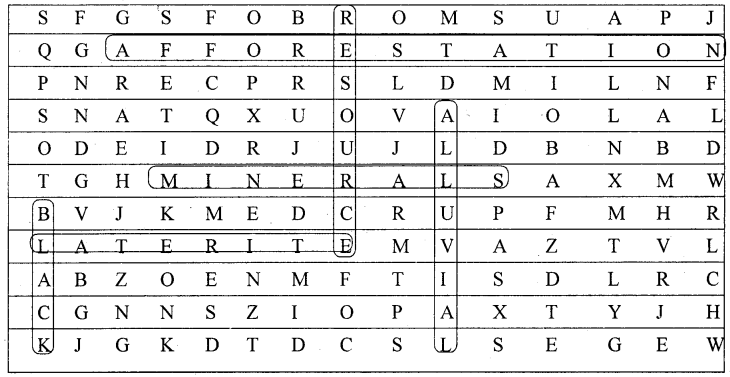
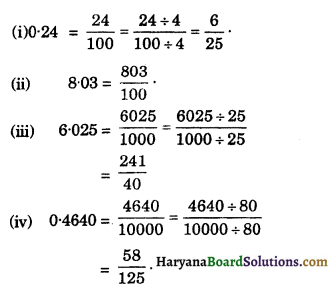
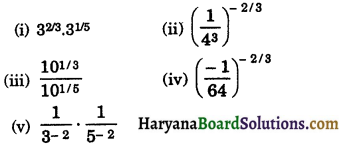
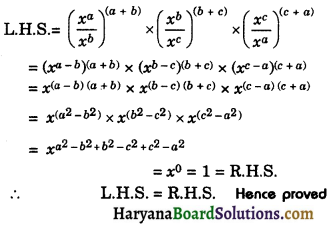

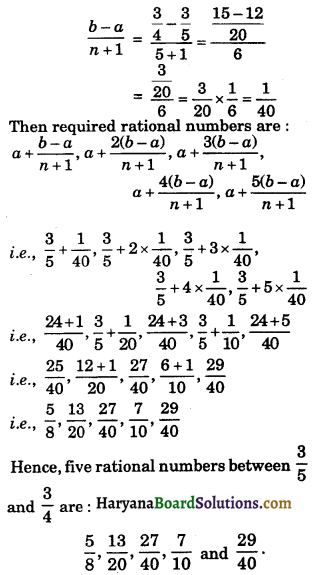
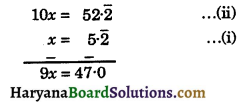
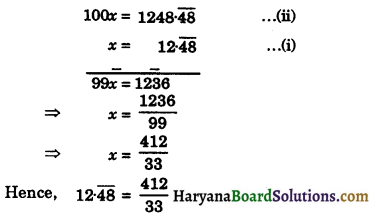
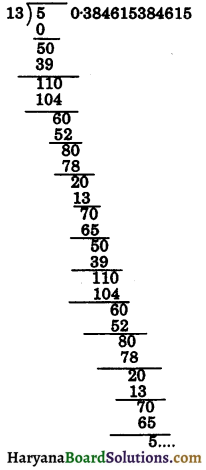
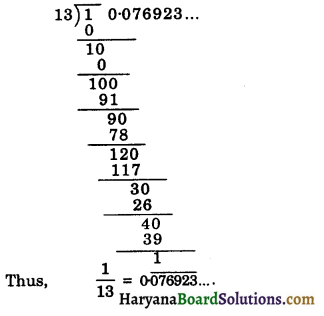
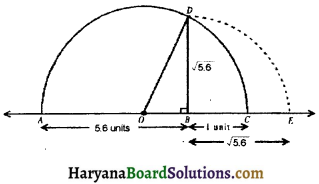
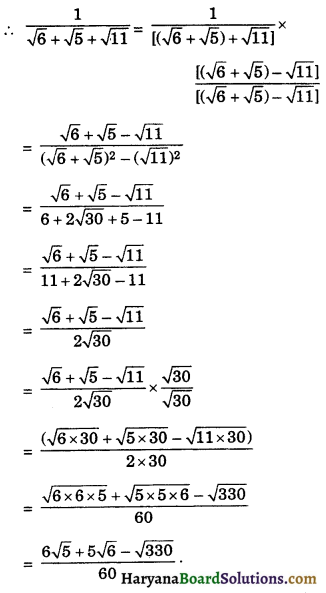
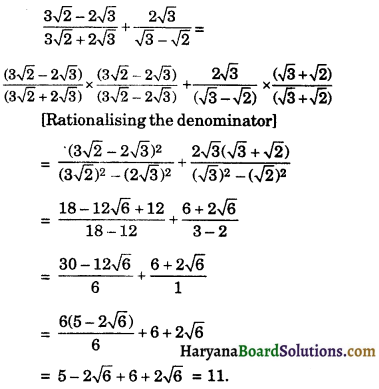
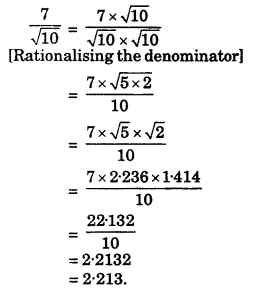
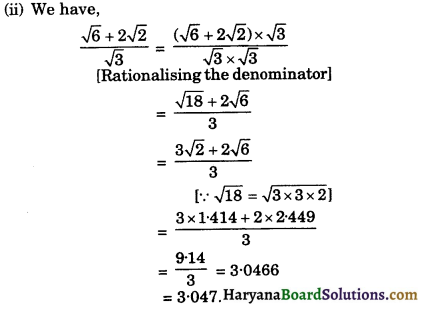
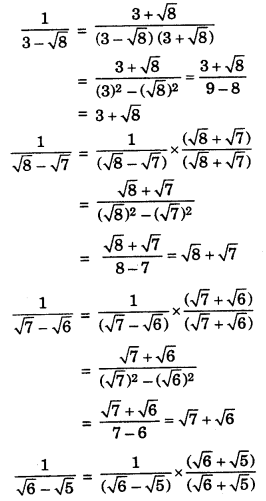
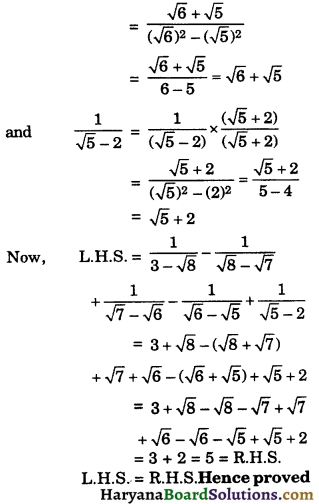
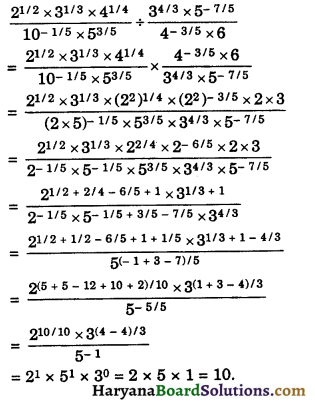
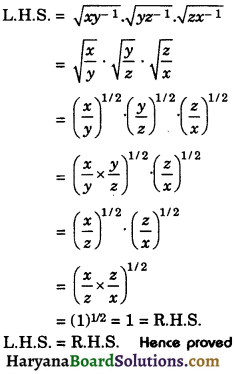
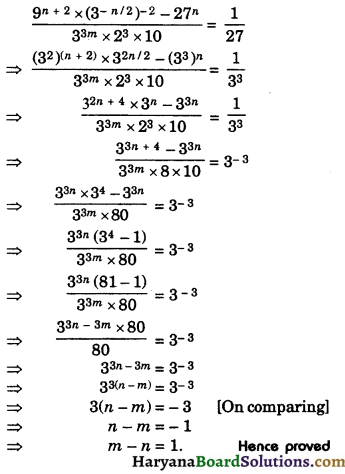
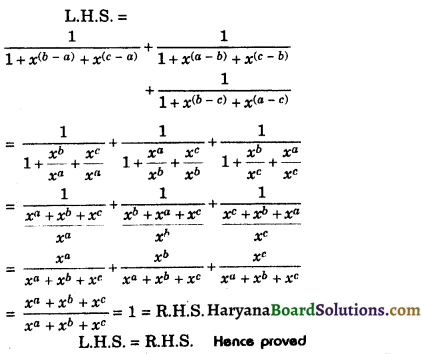
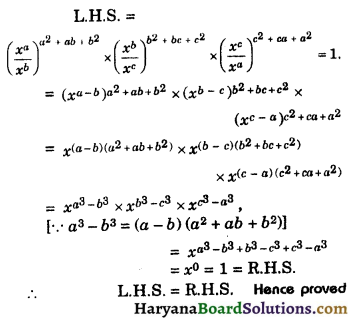
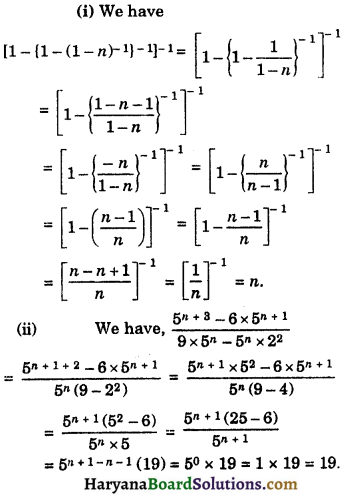
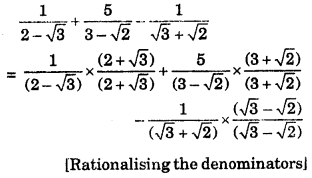
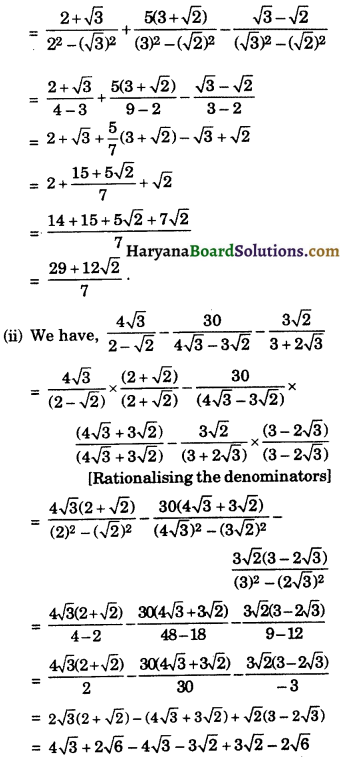
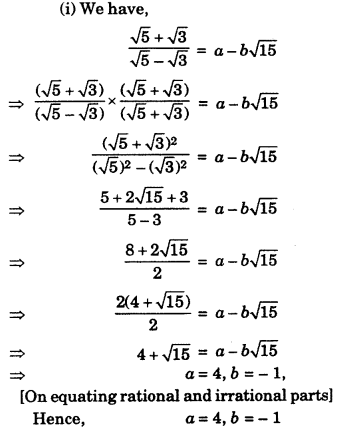
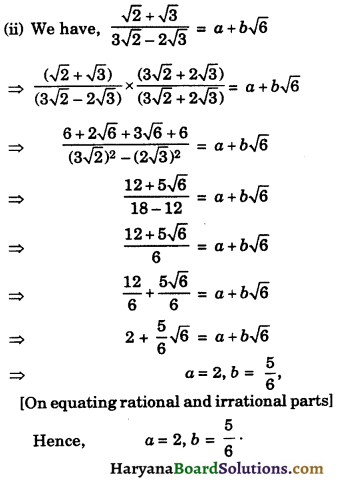
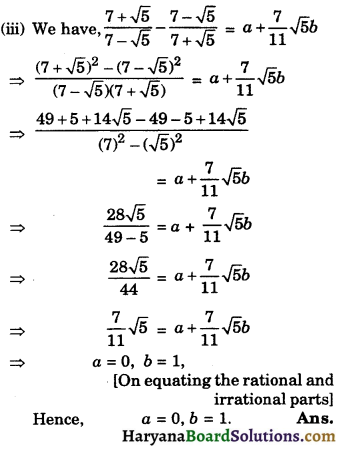
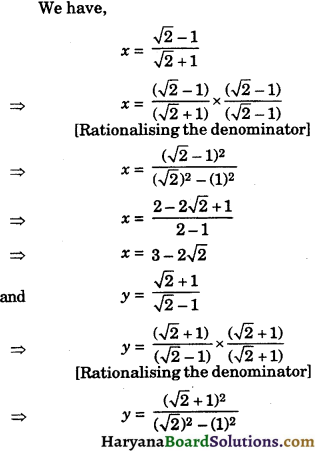
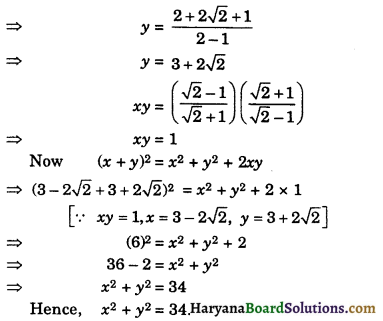
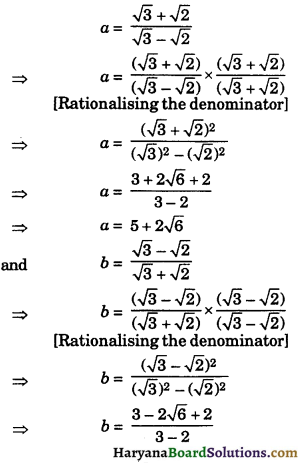
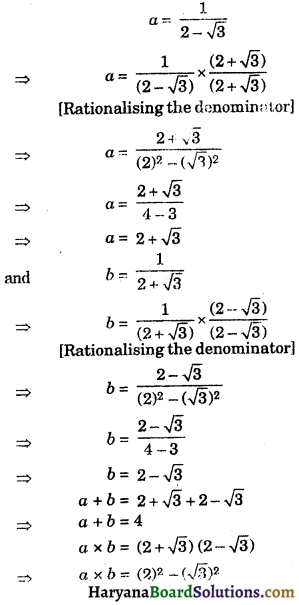
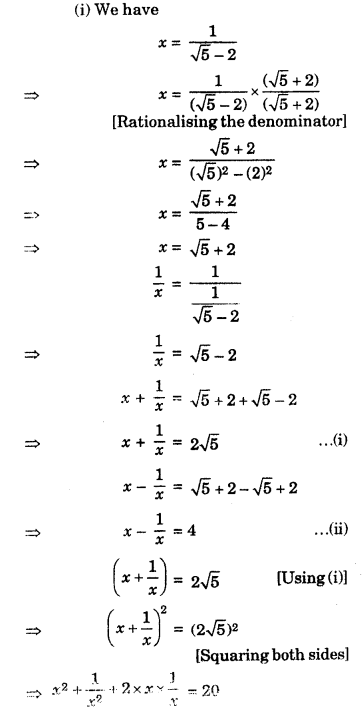
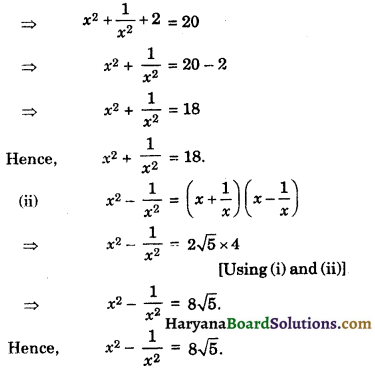
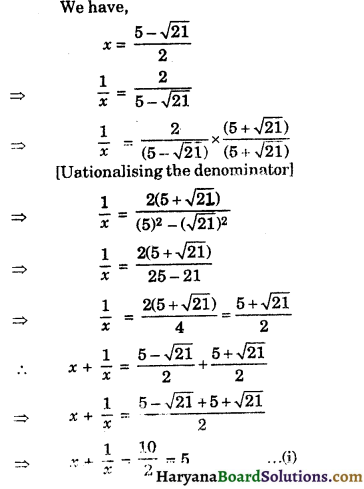
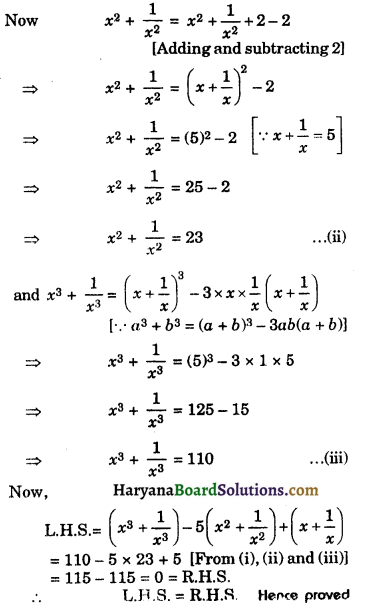
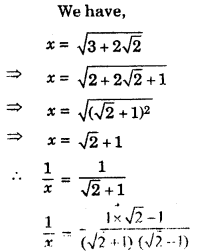
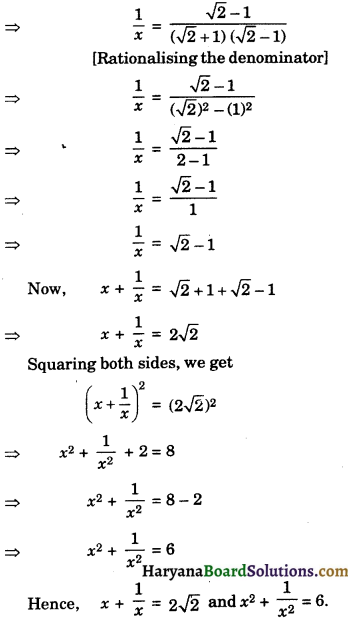
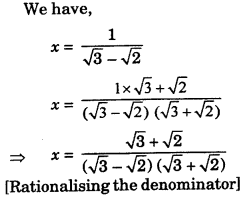
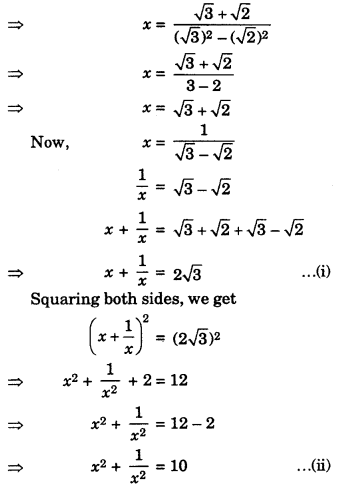
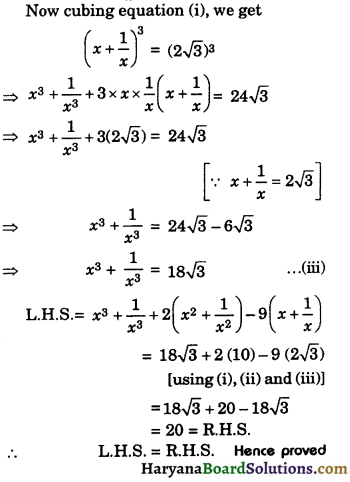
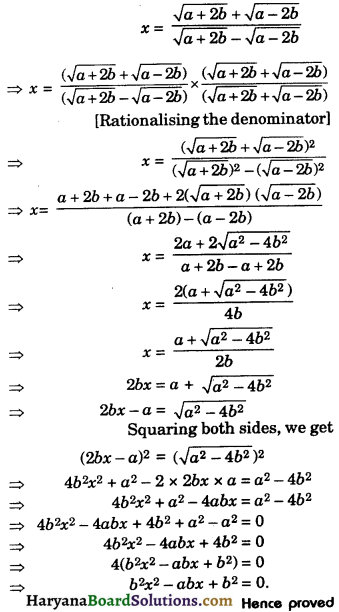
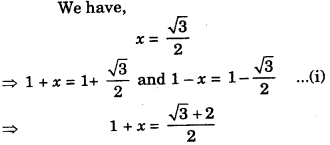
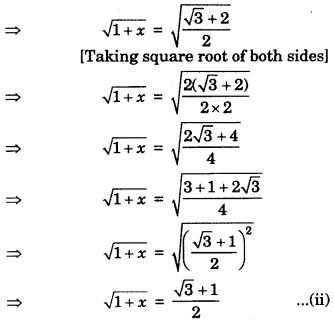
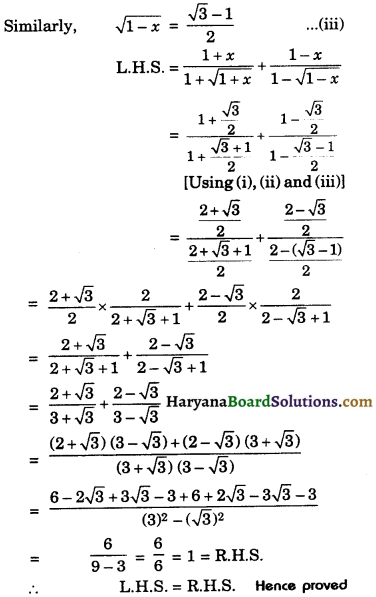
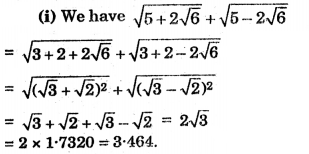
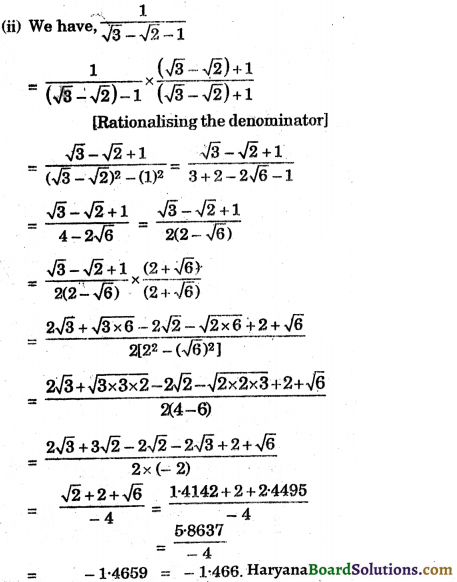
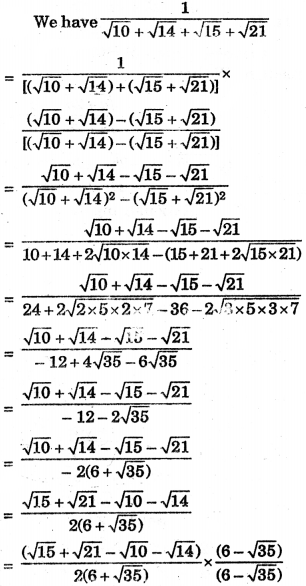
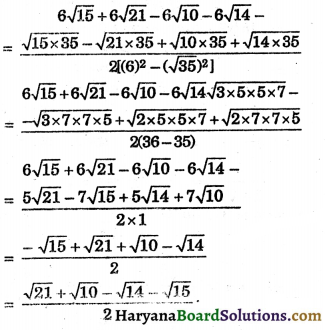
















 ‘
‘








